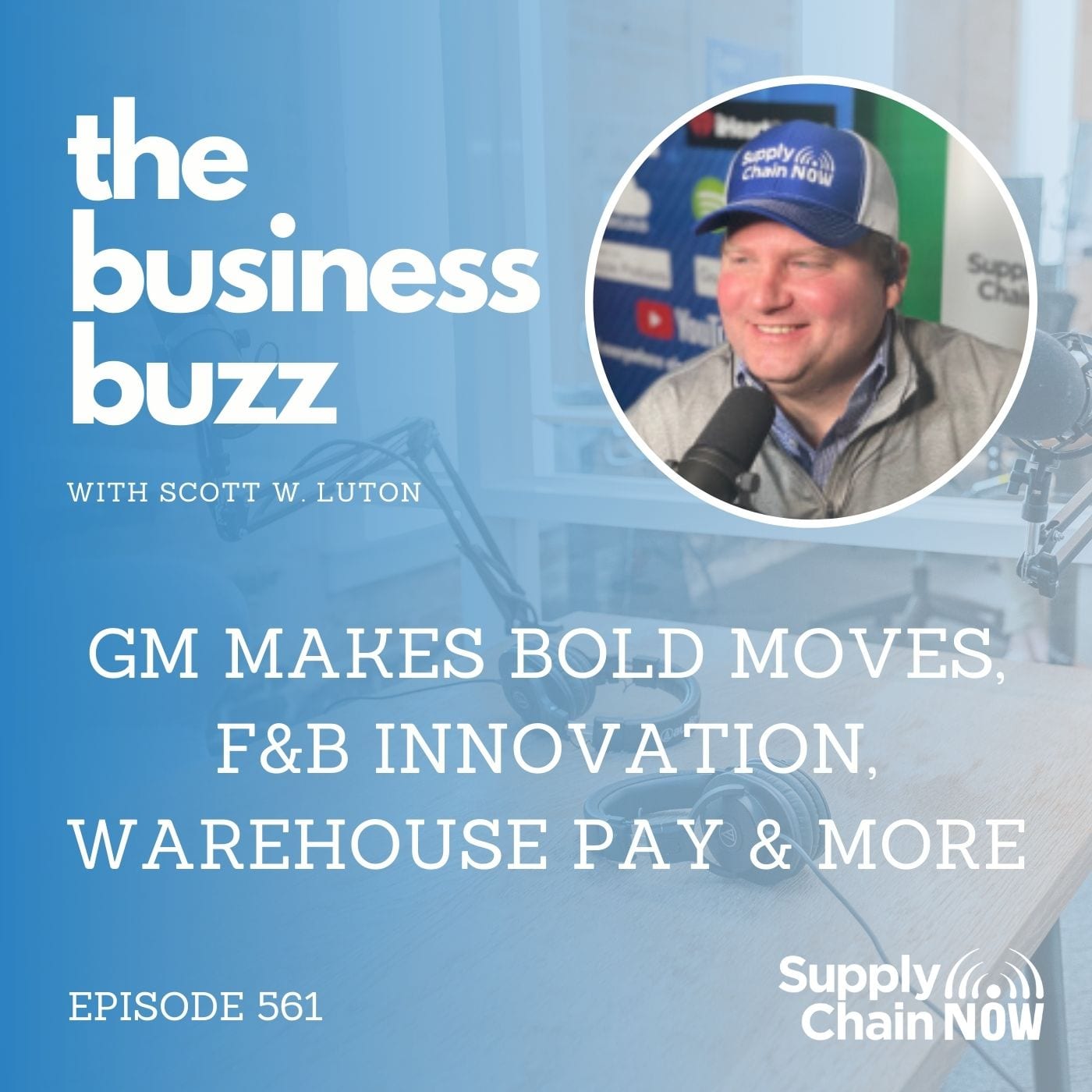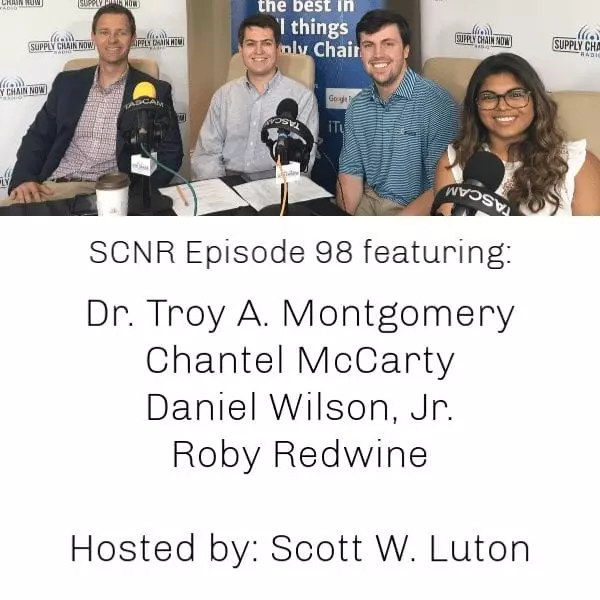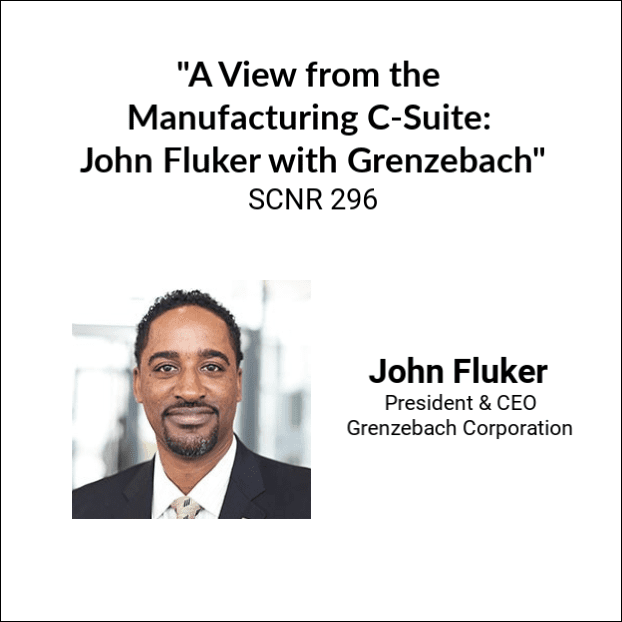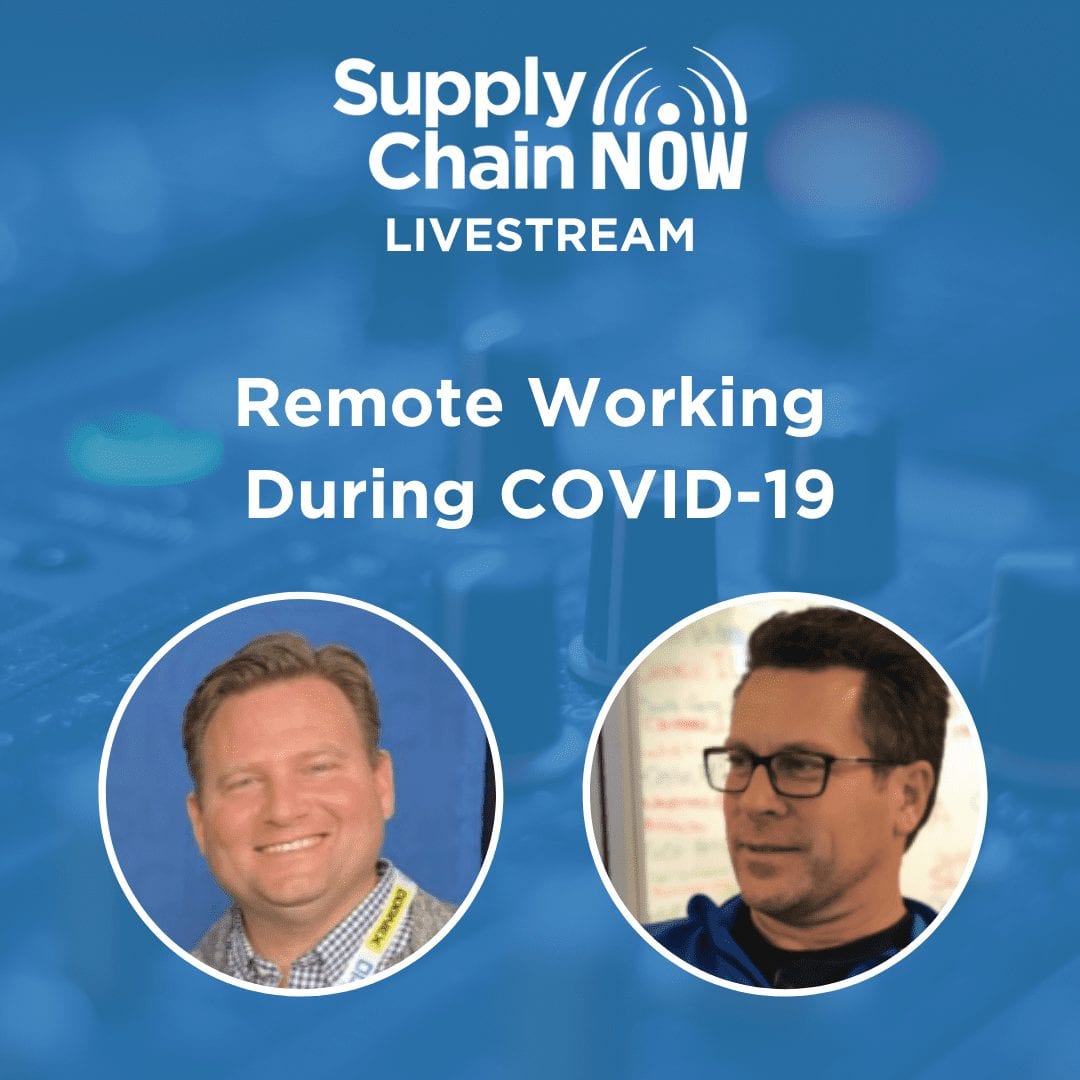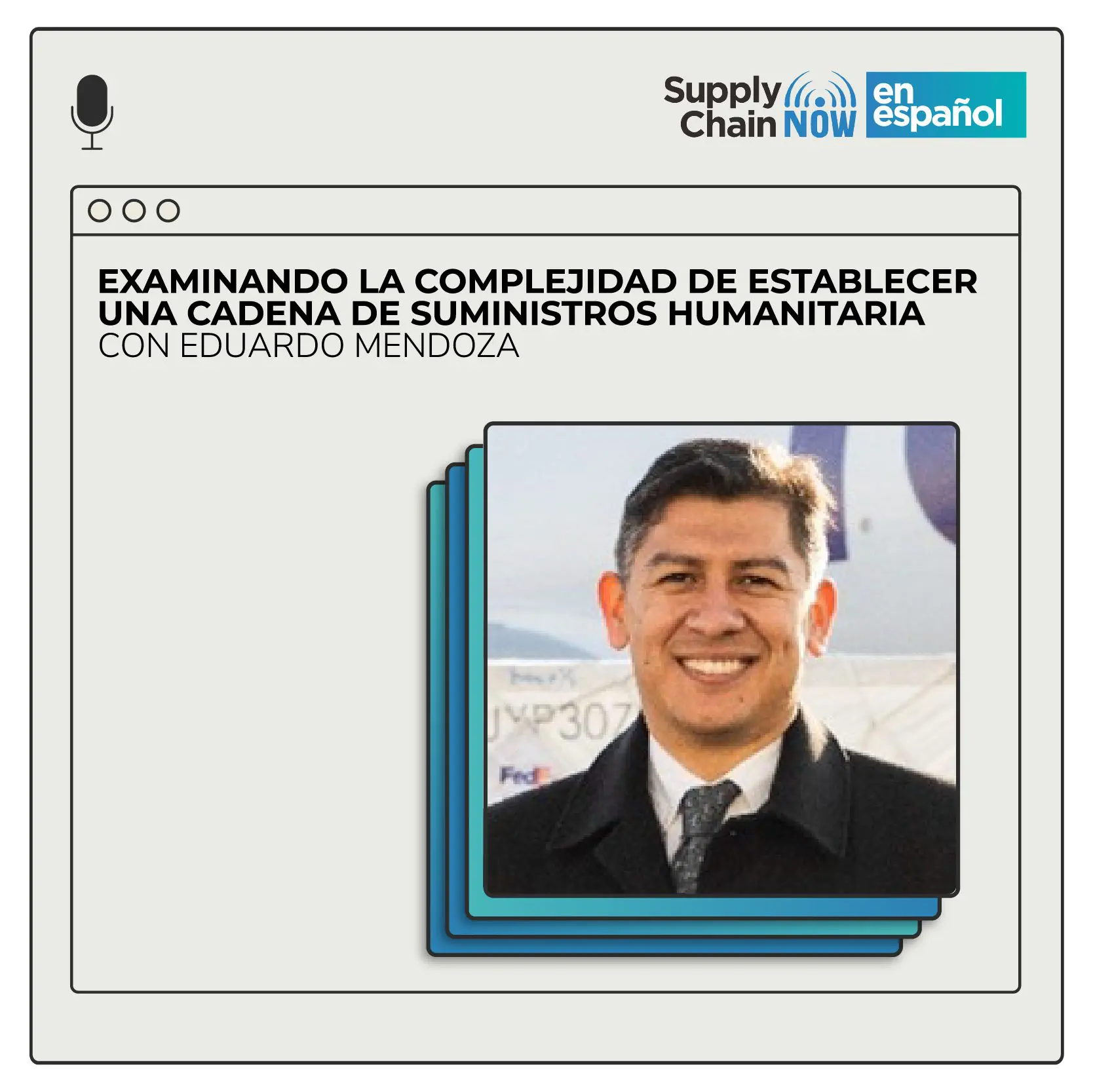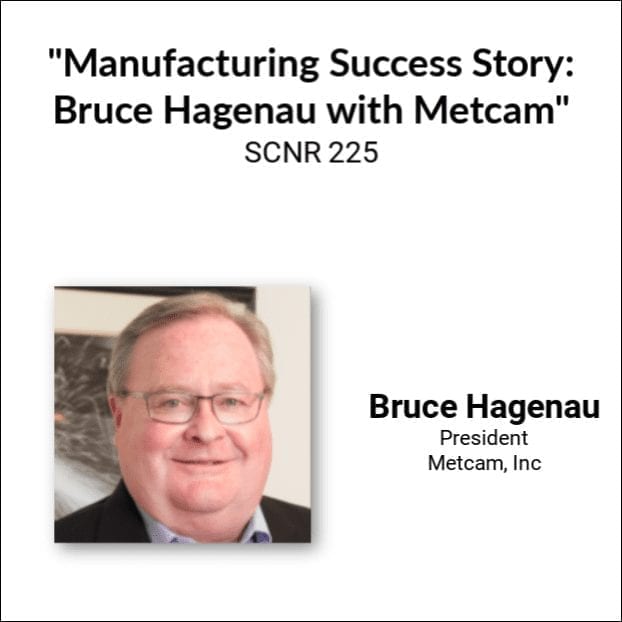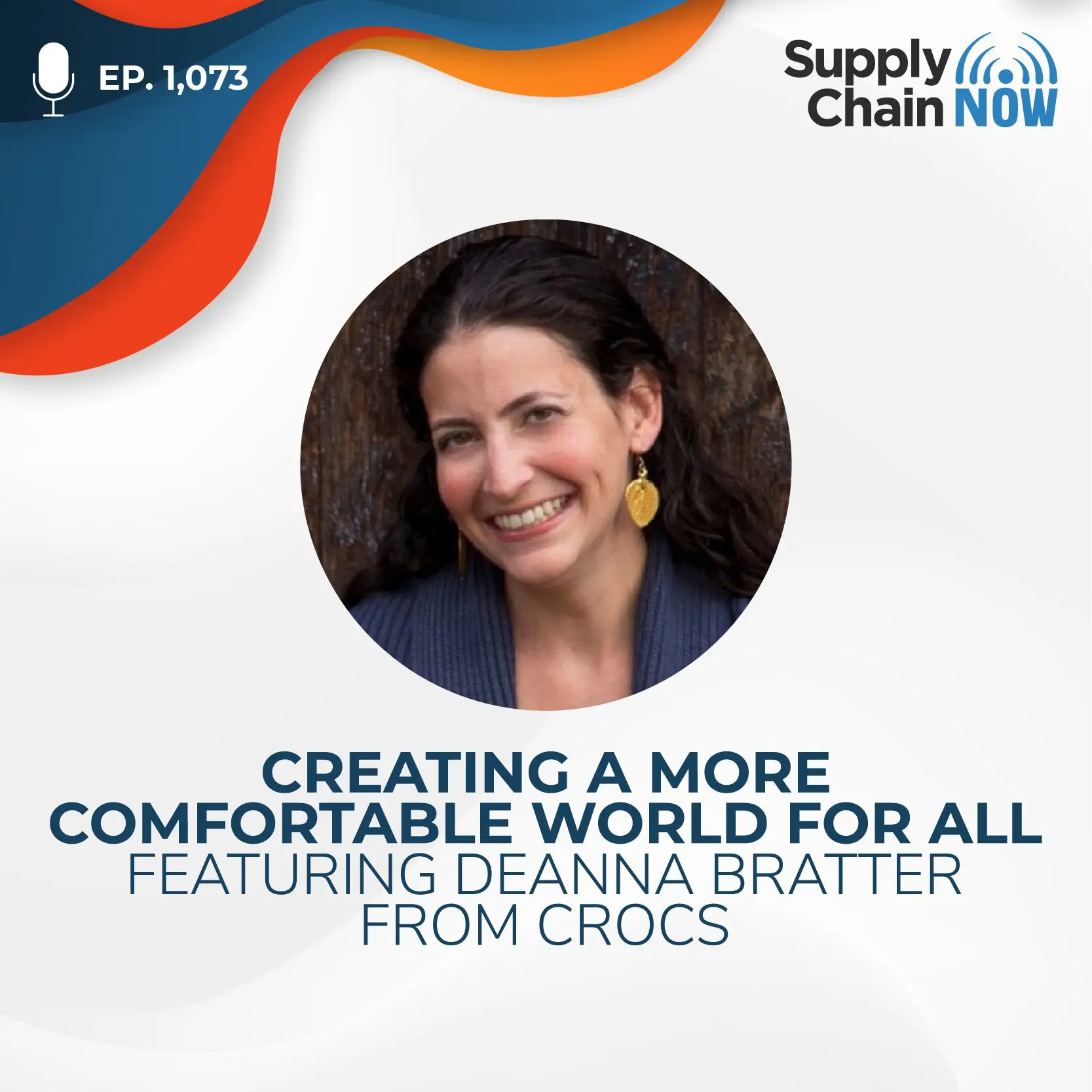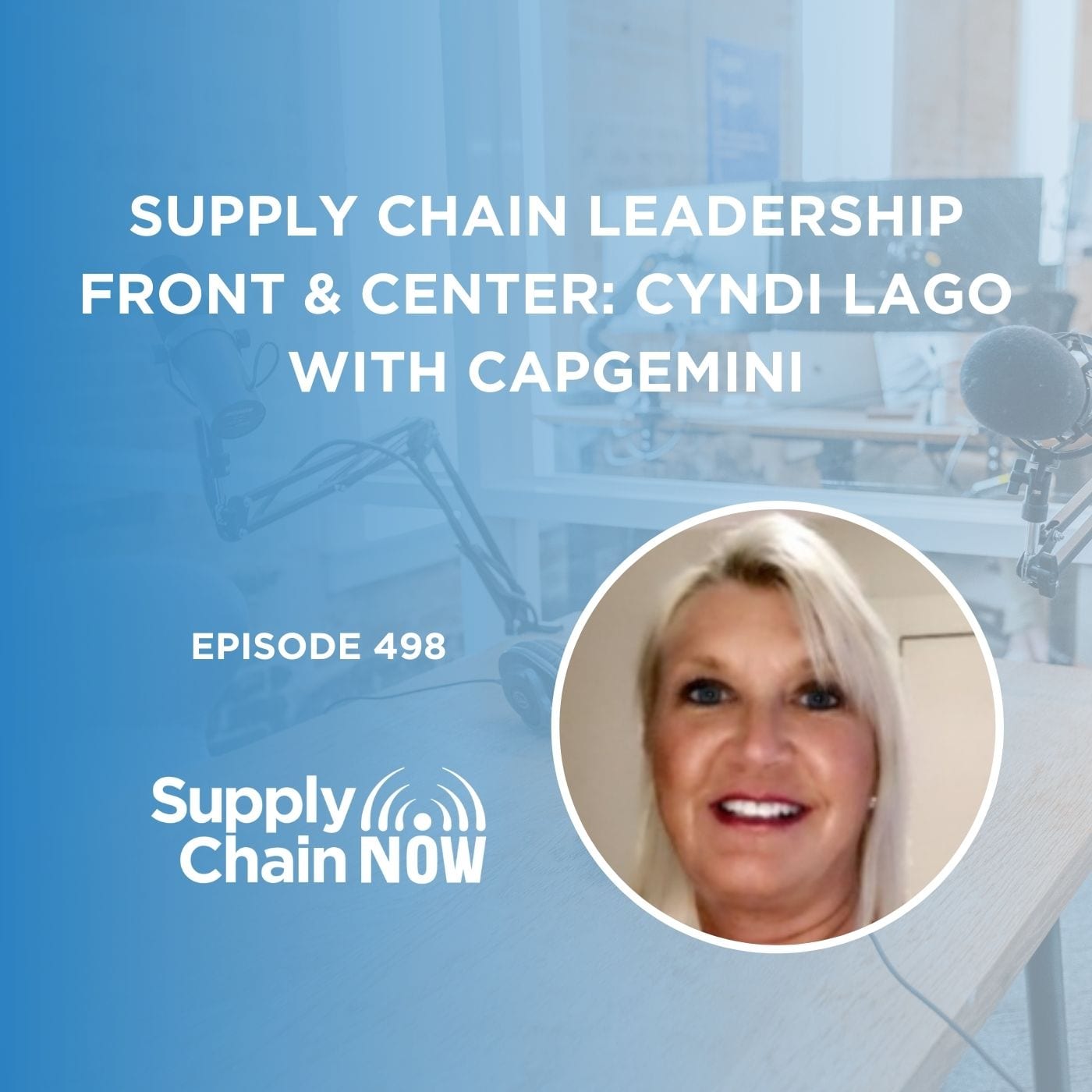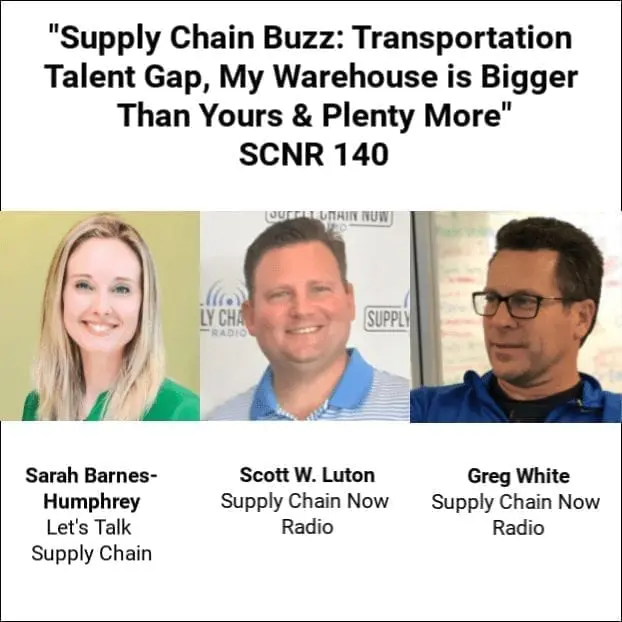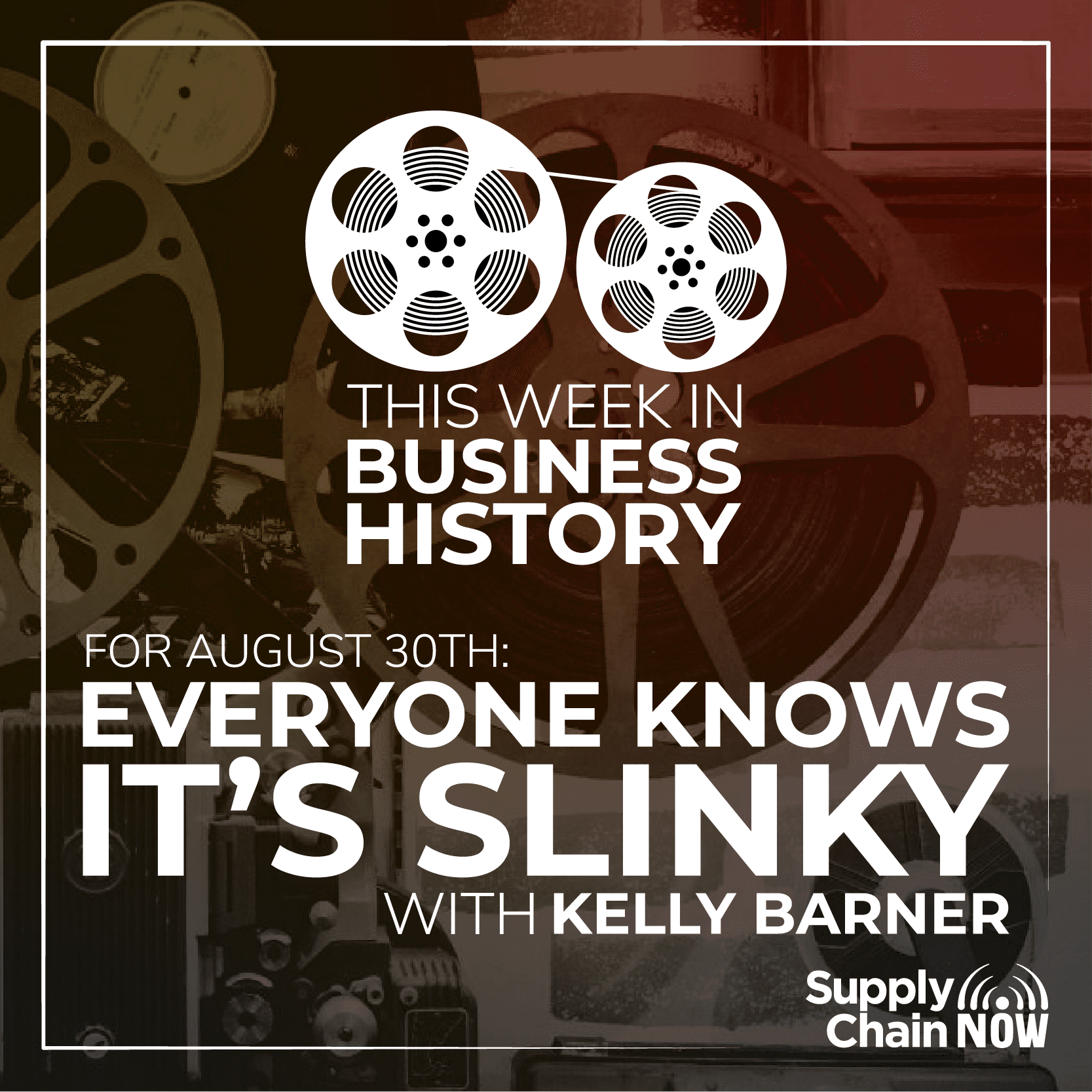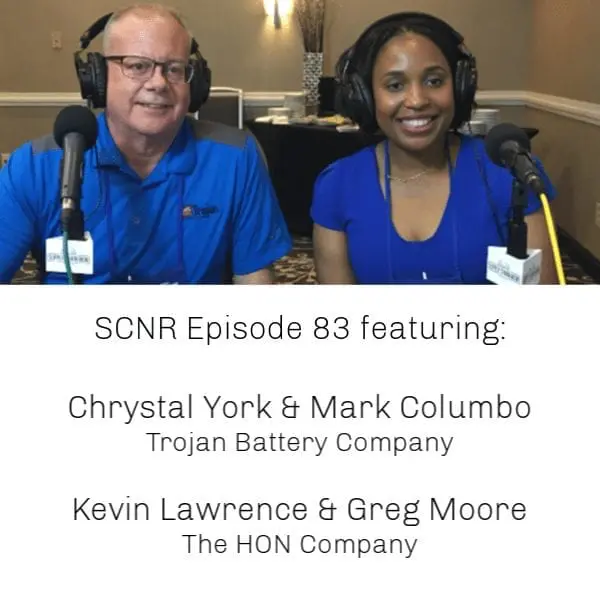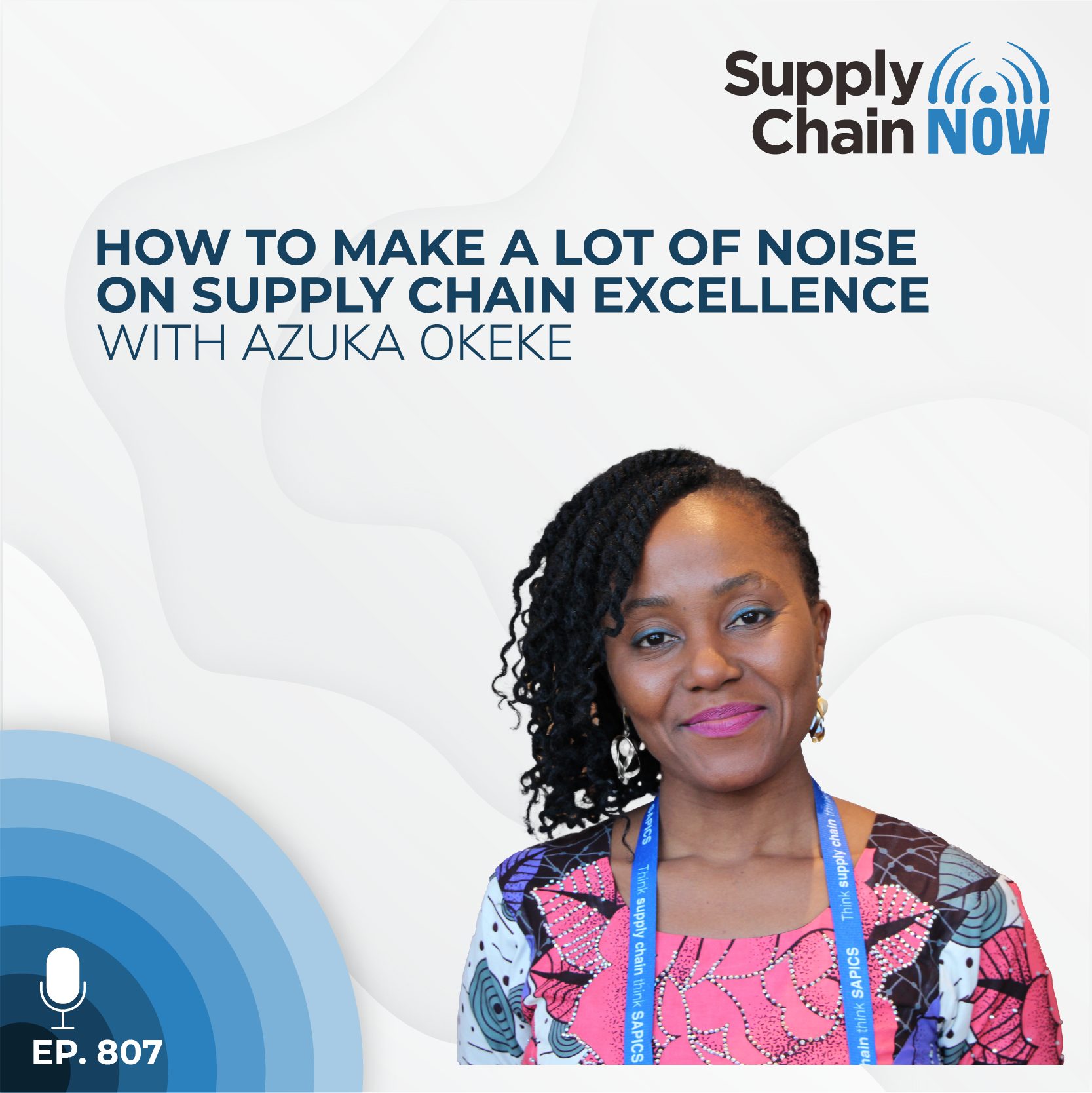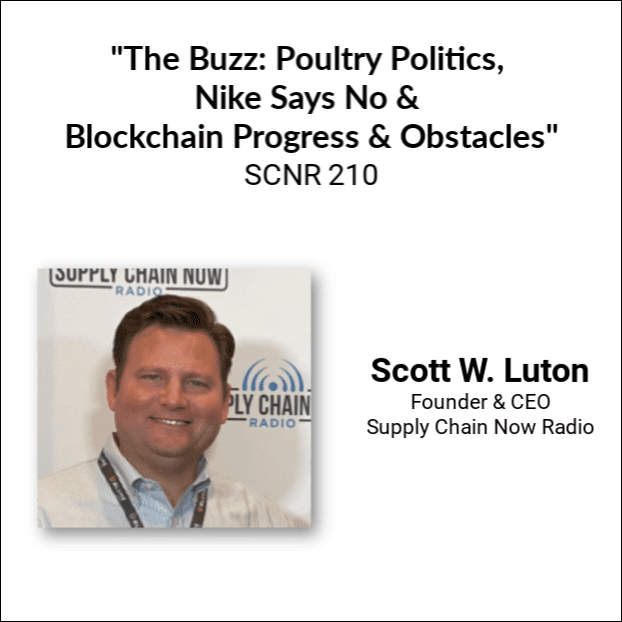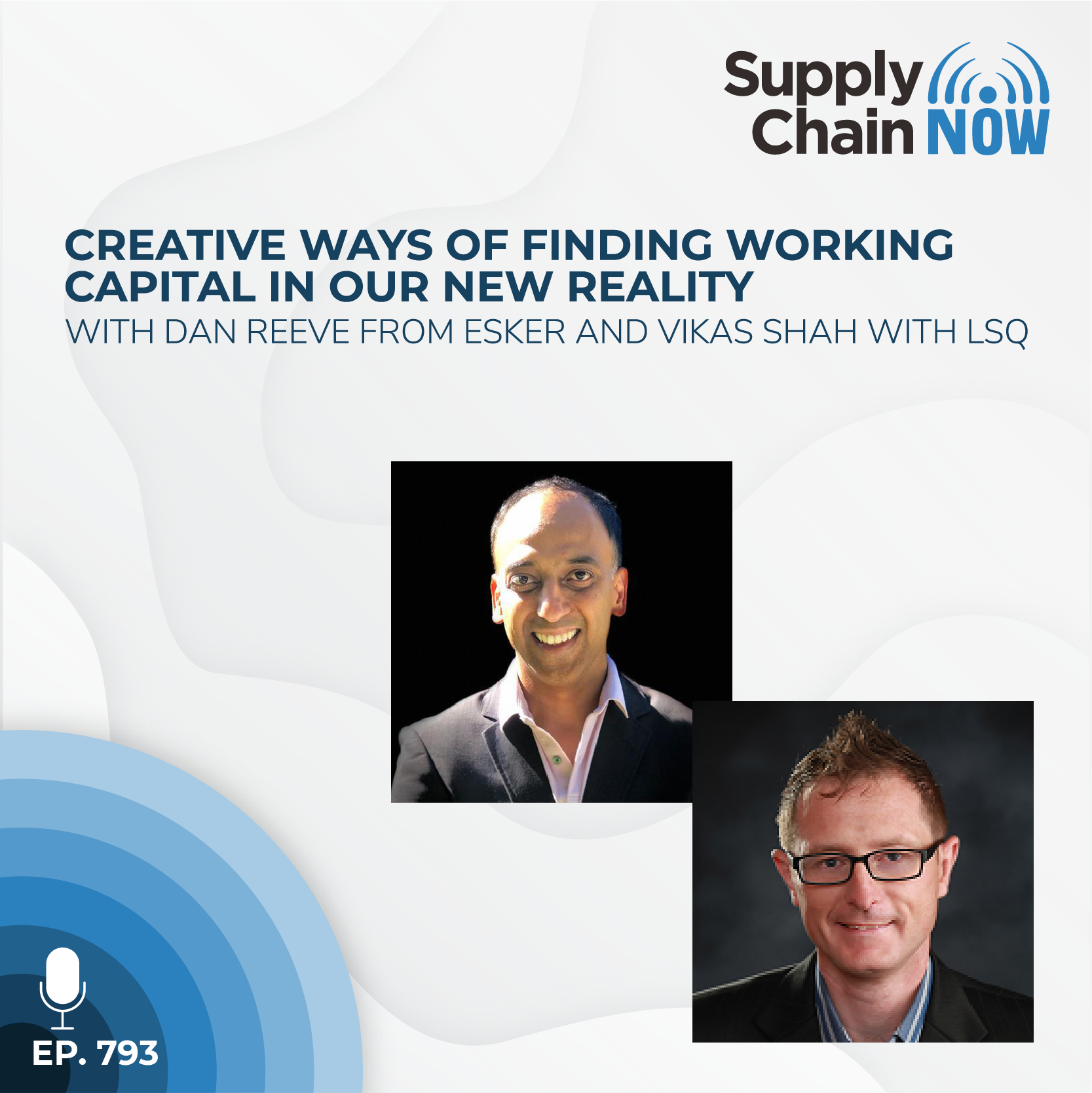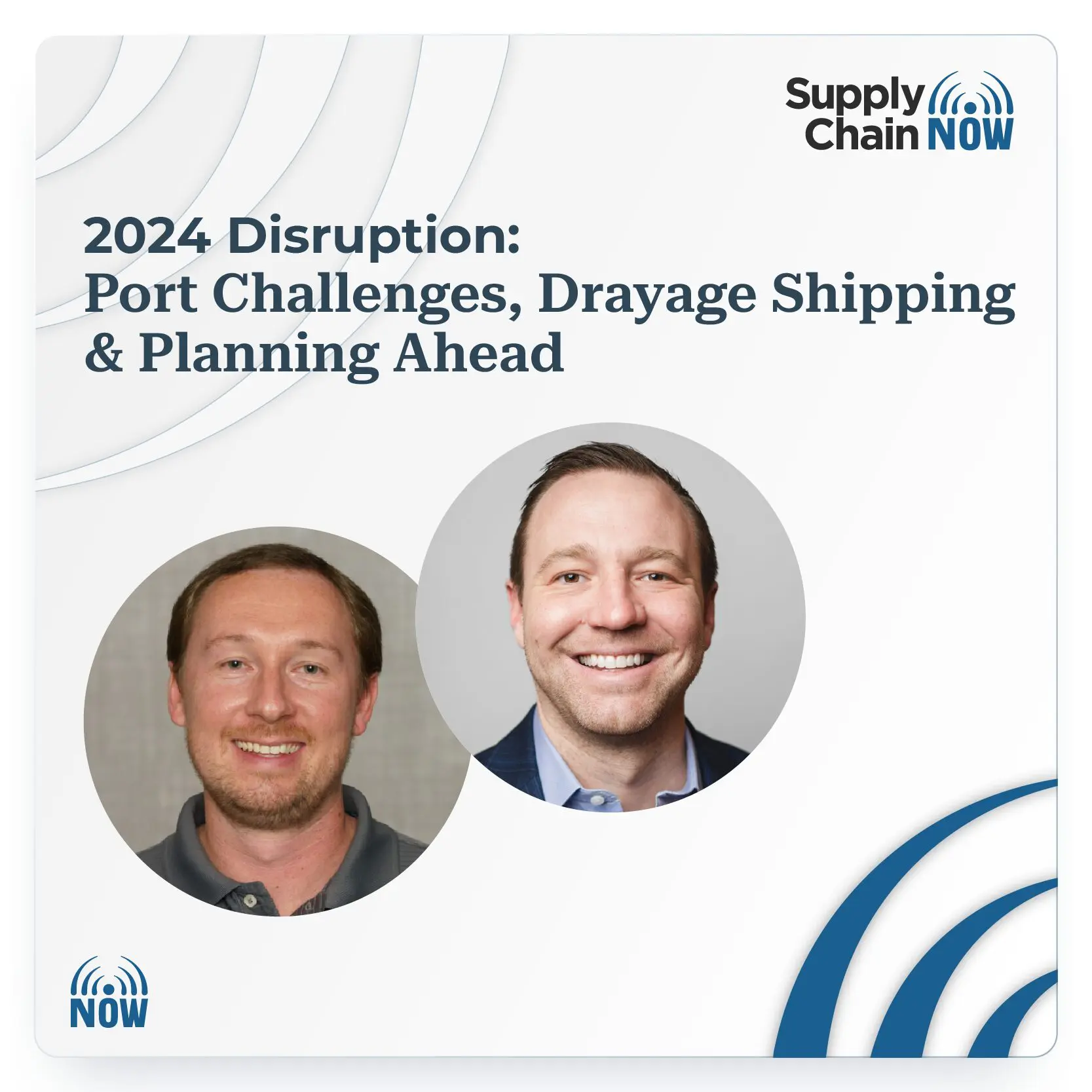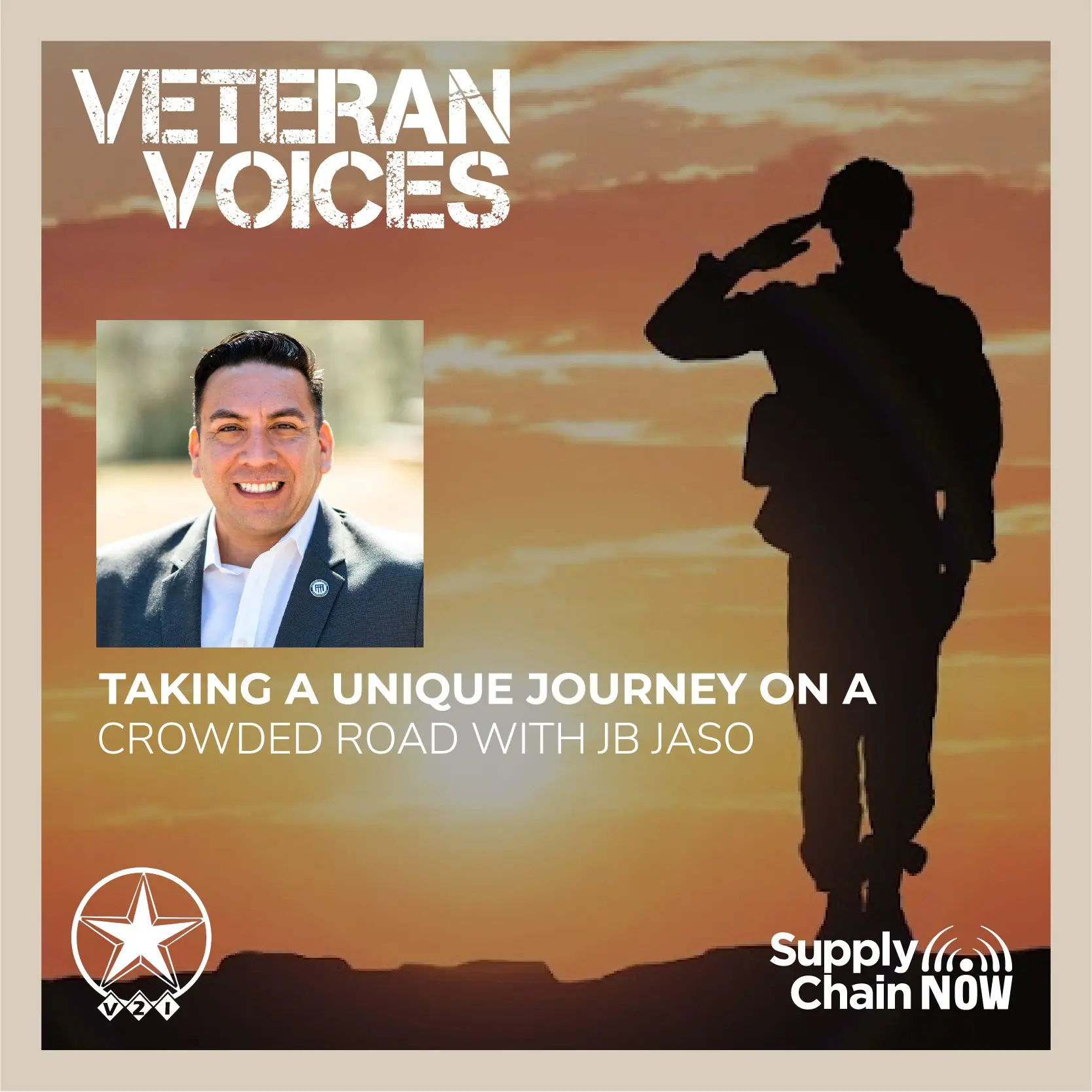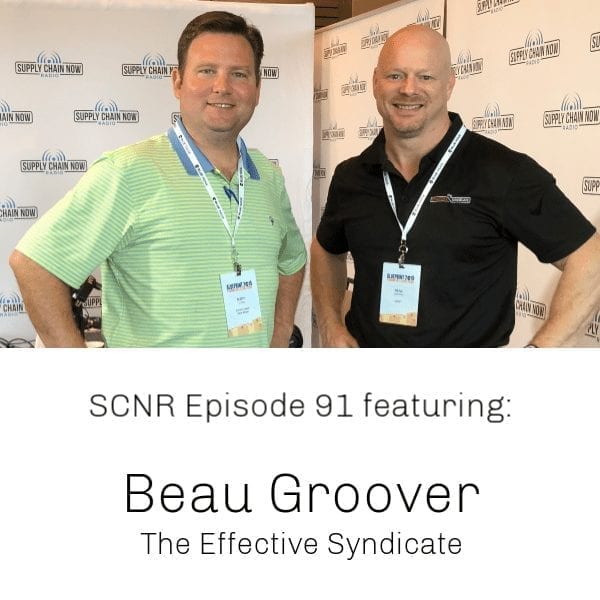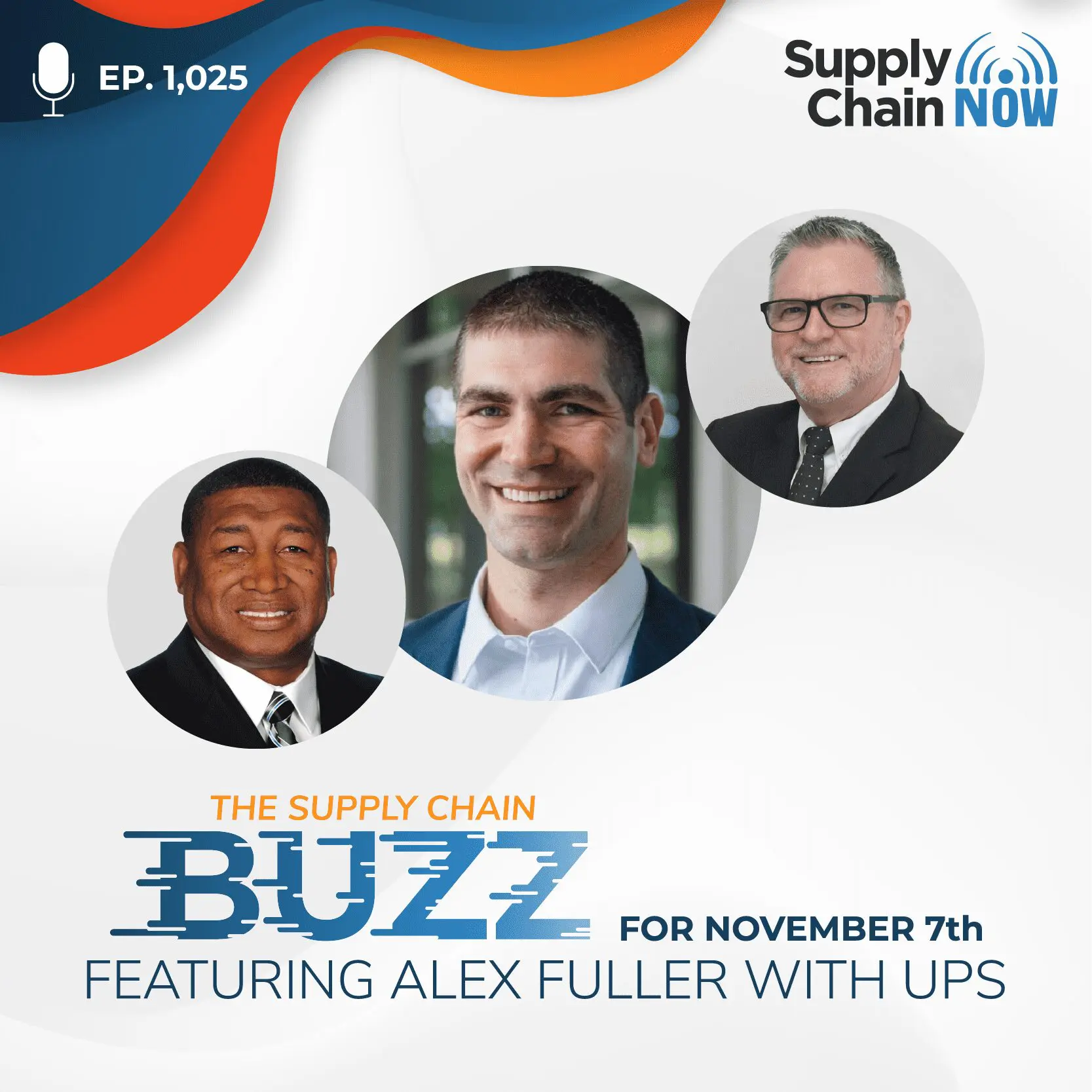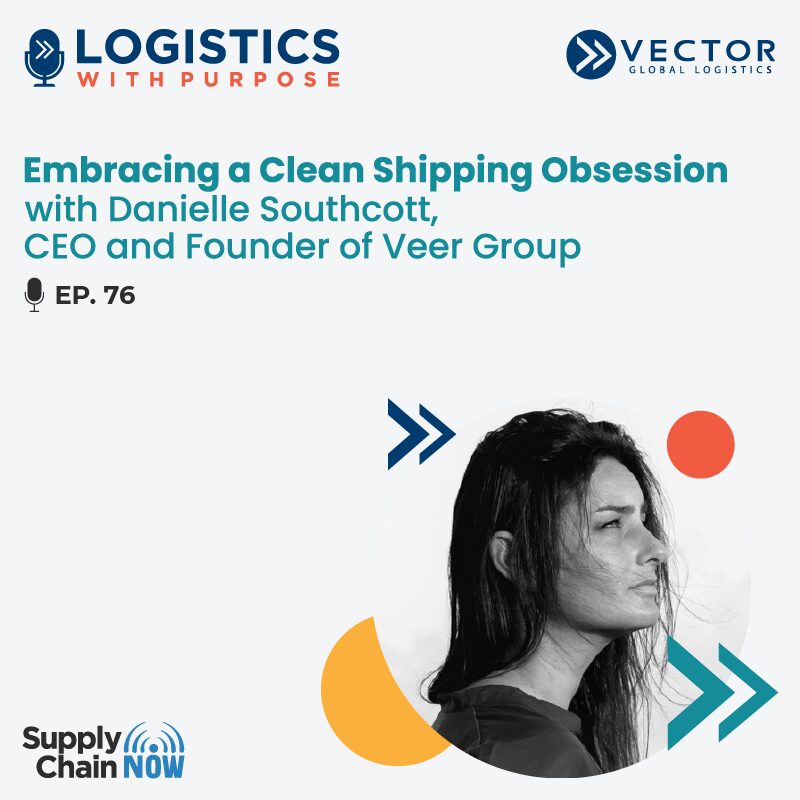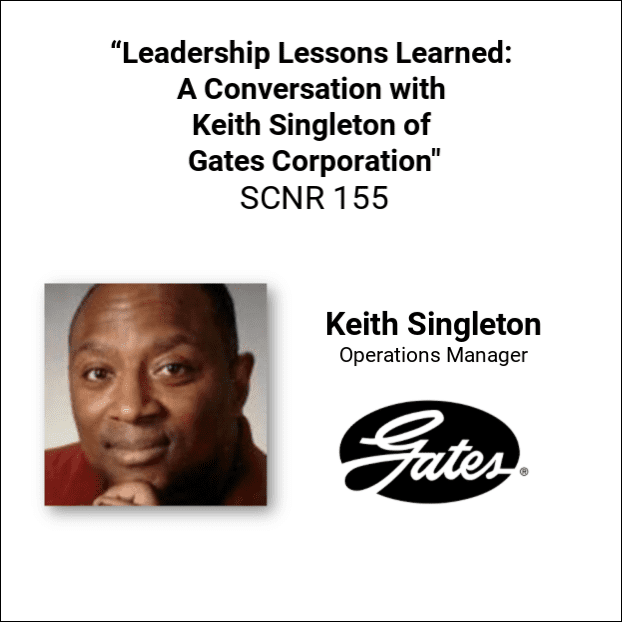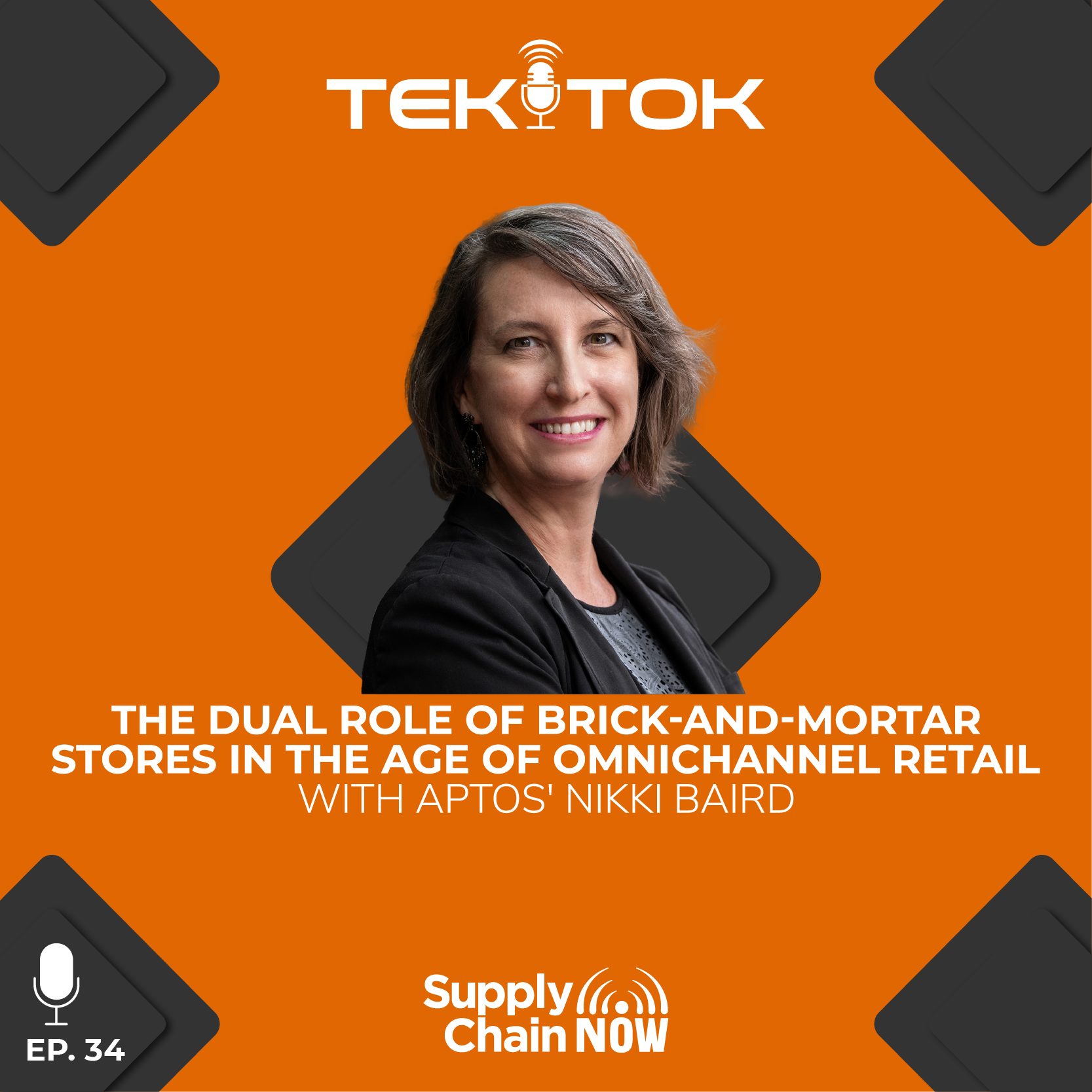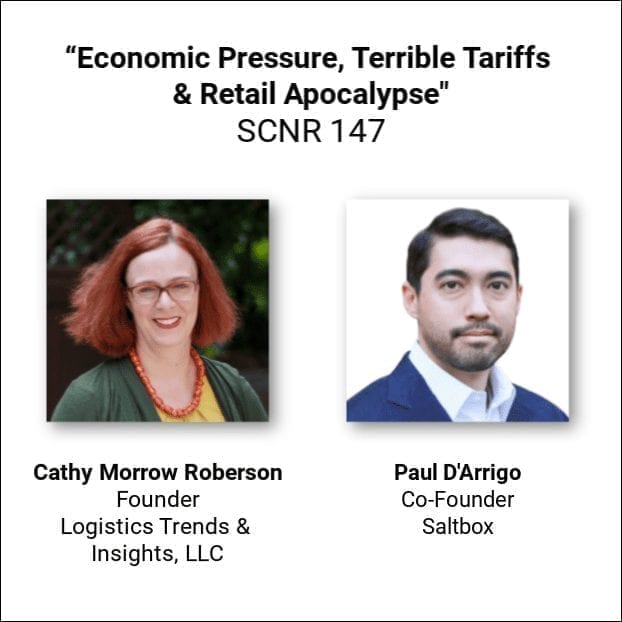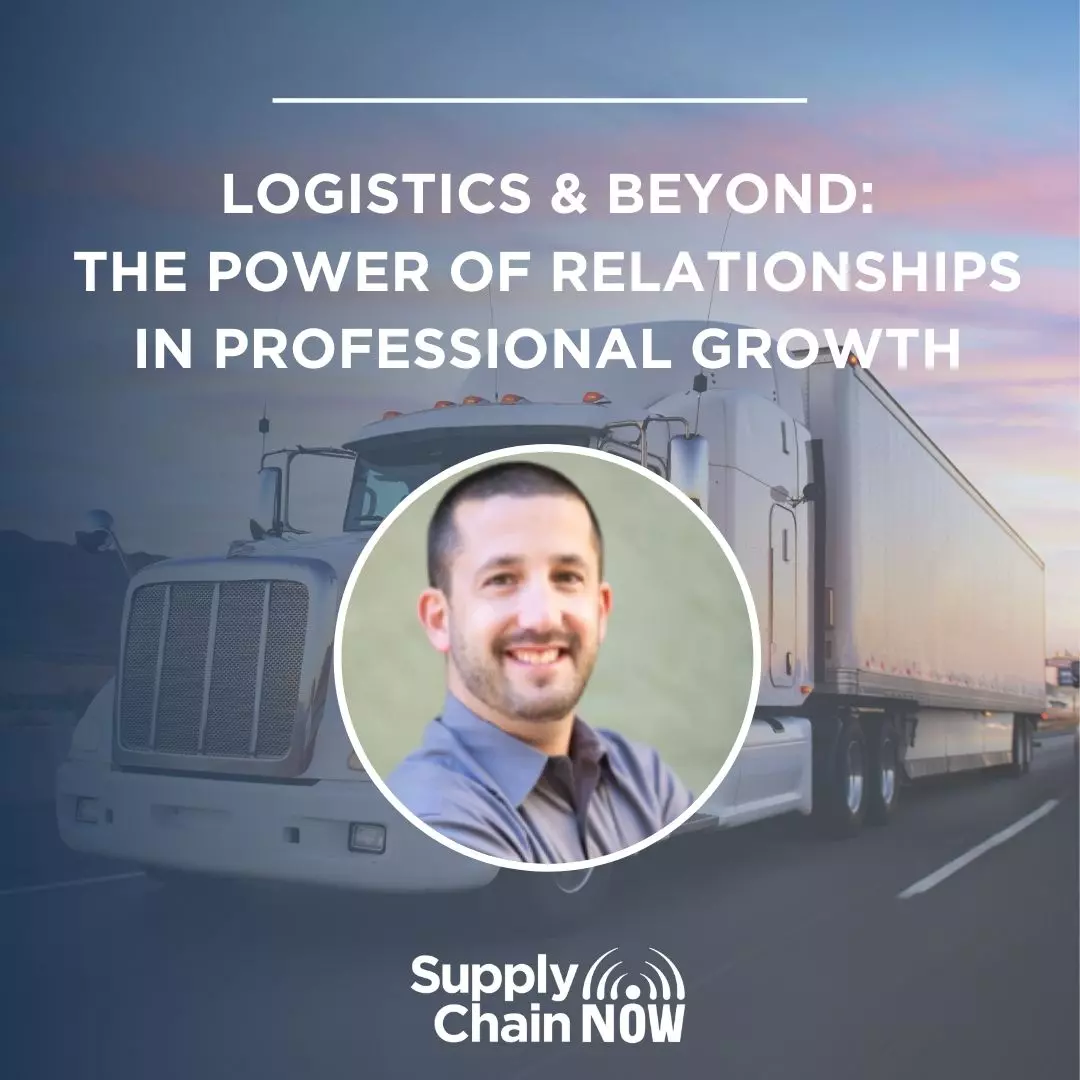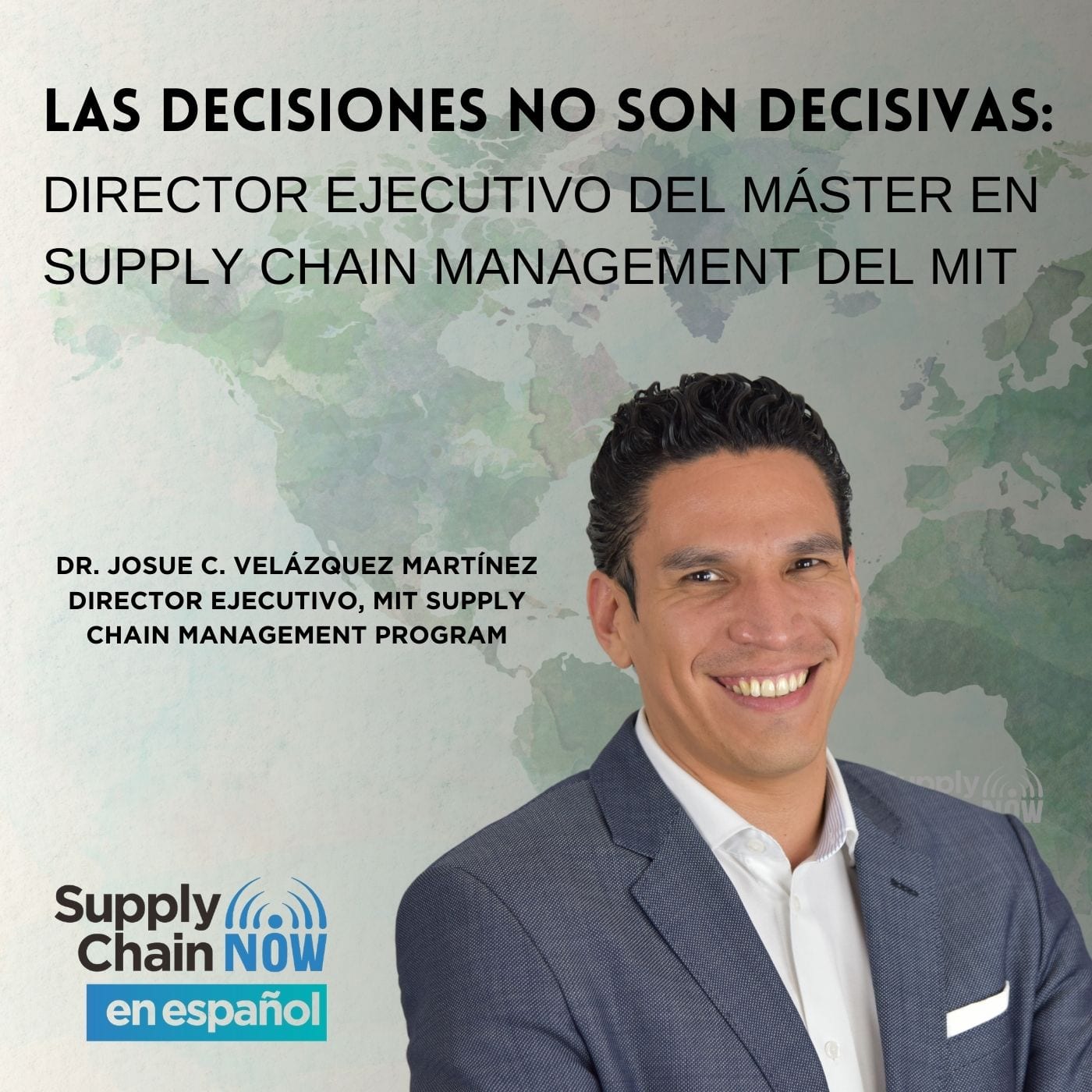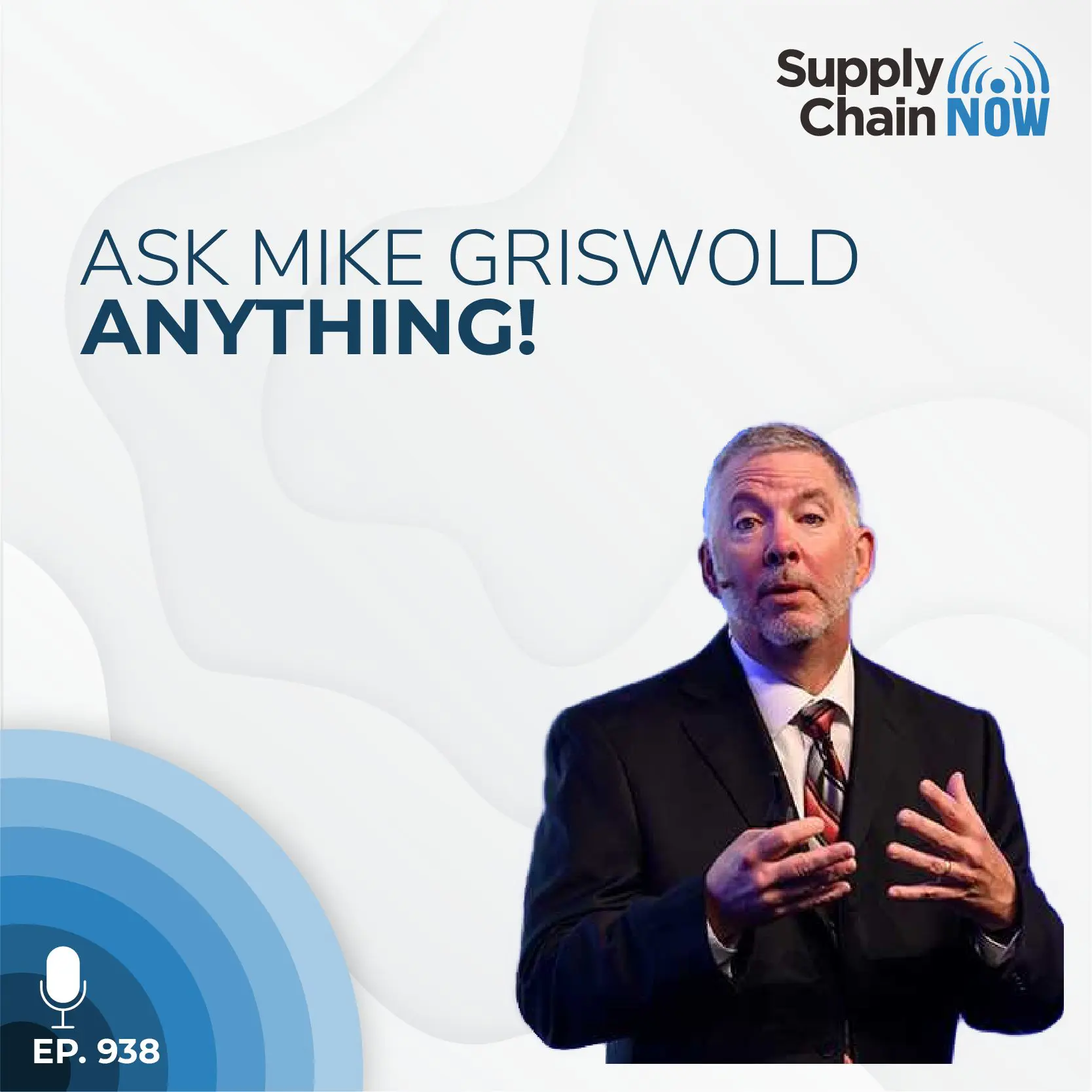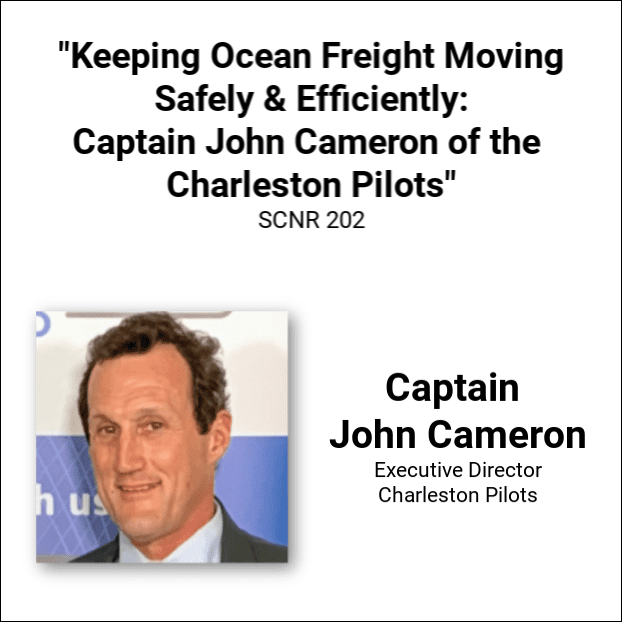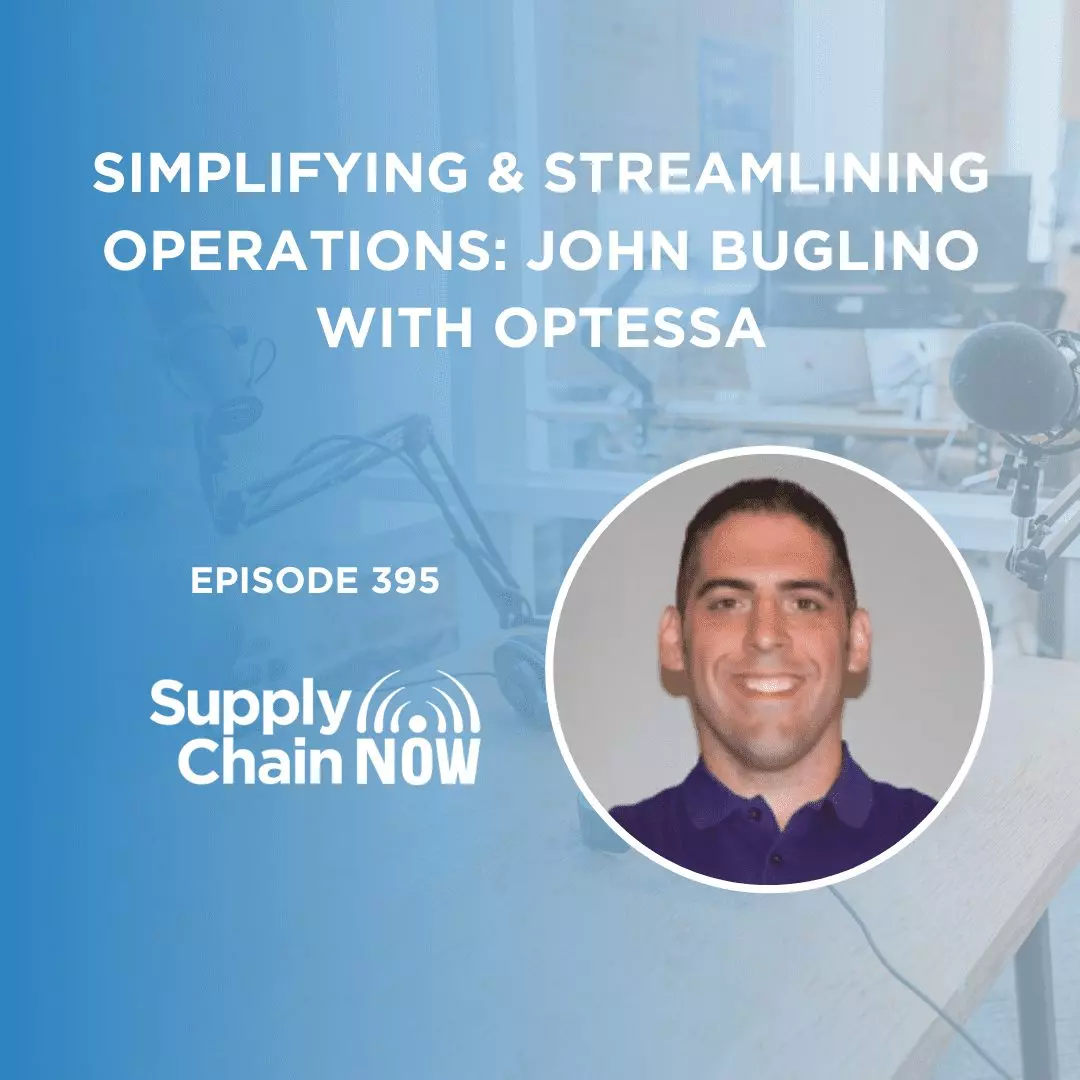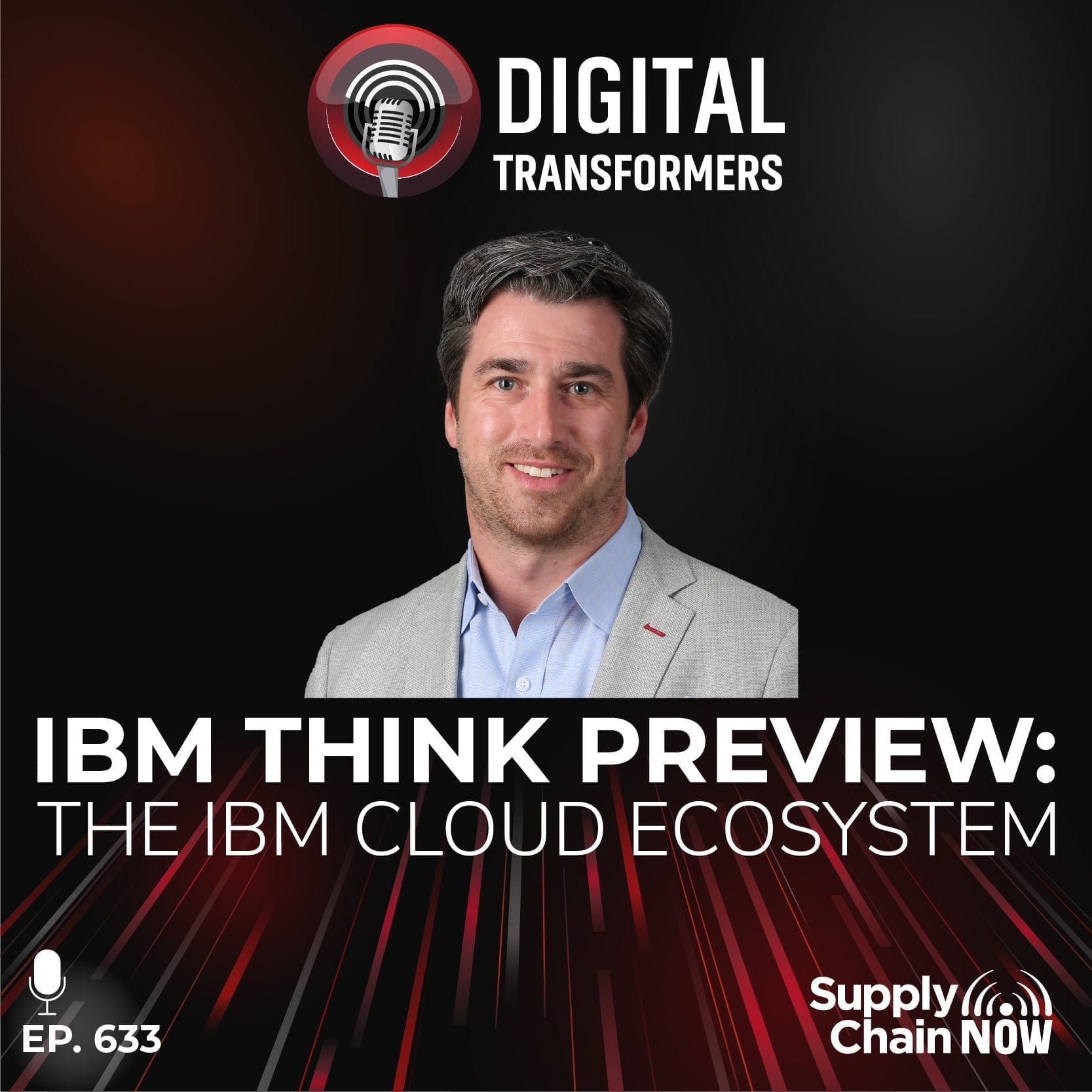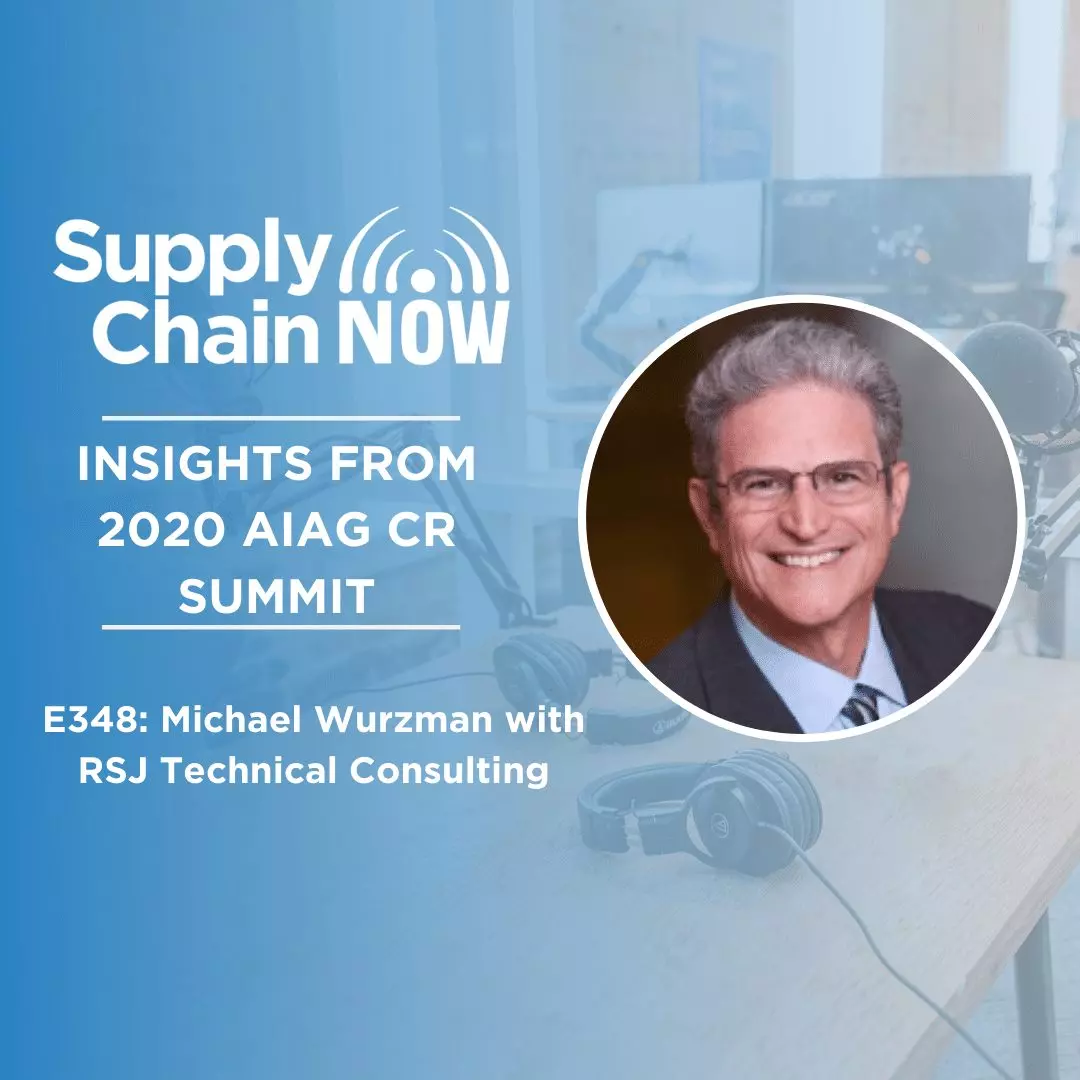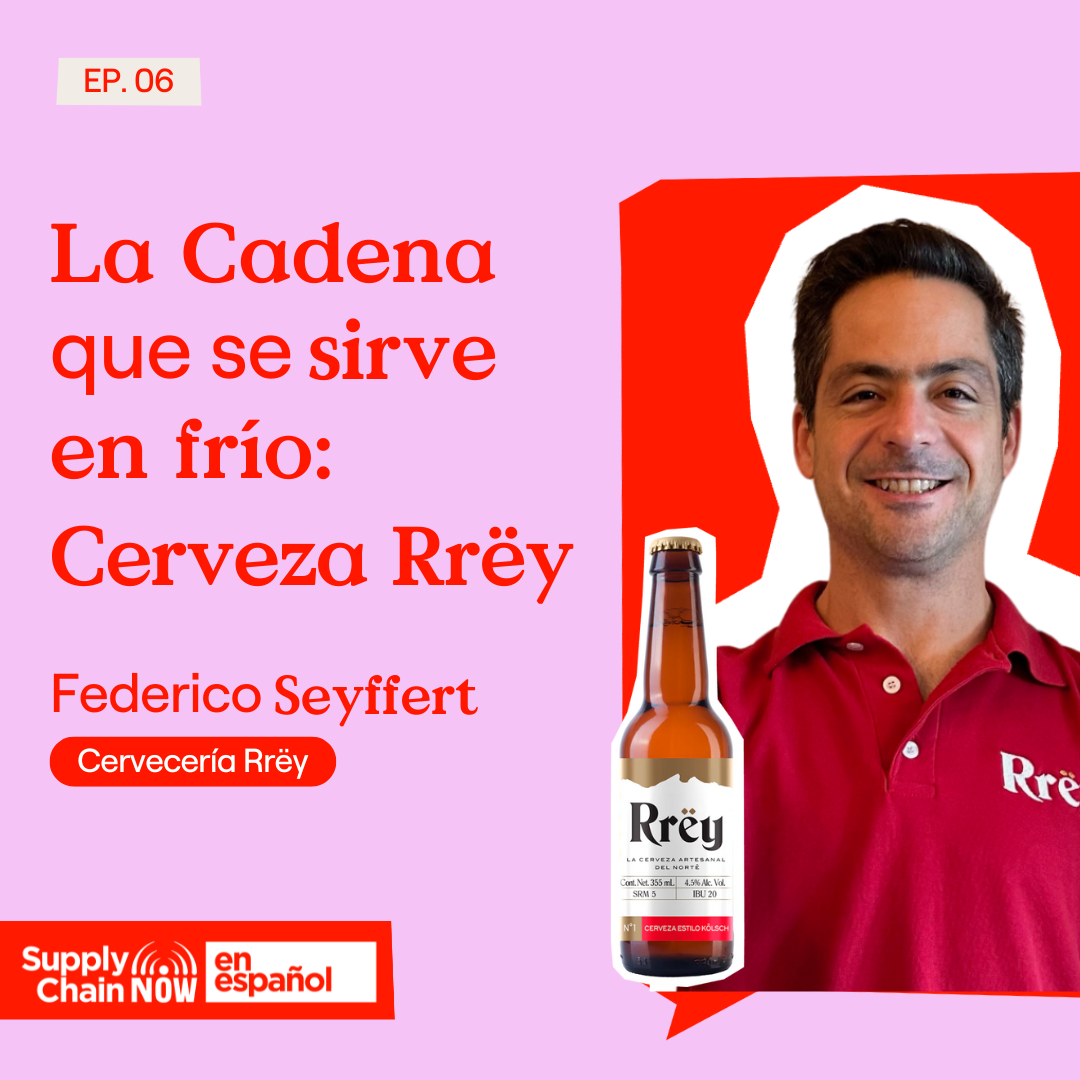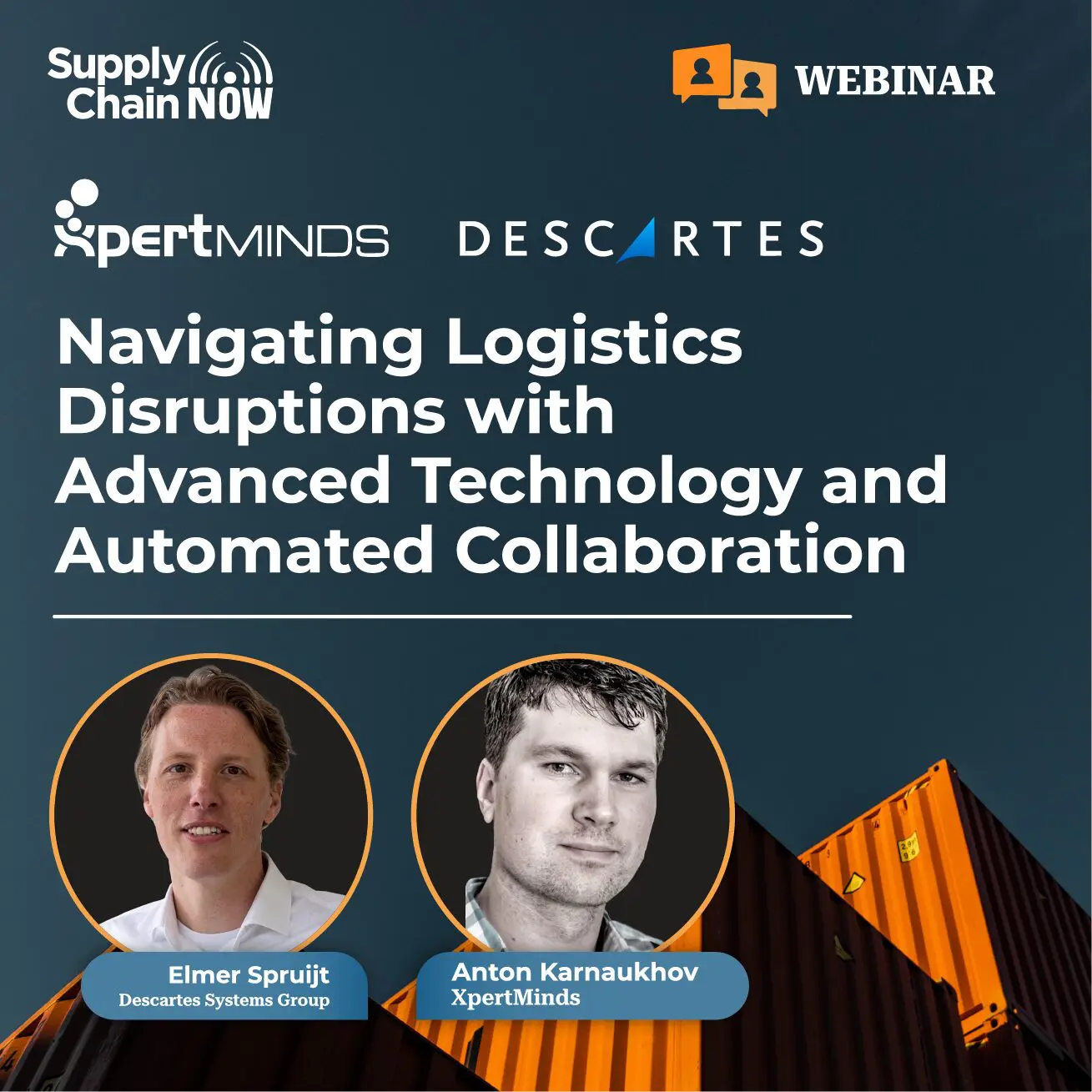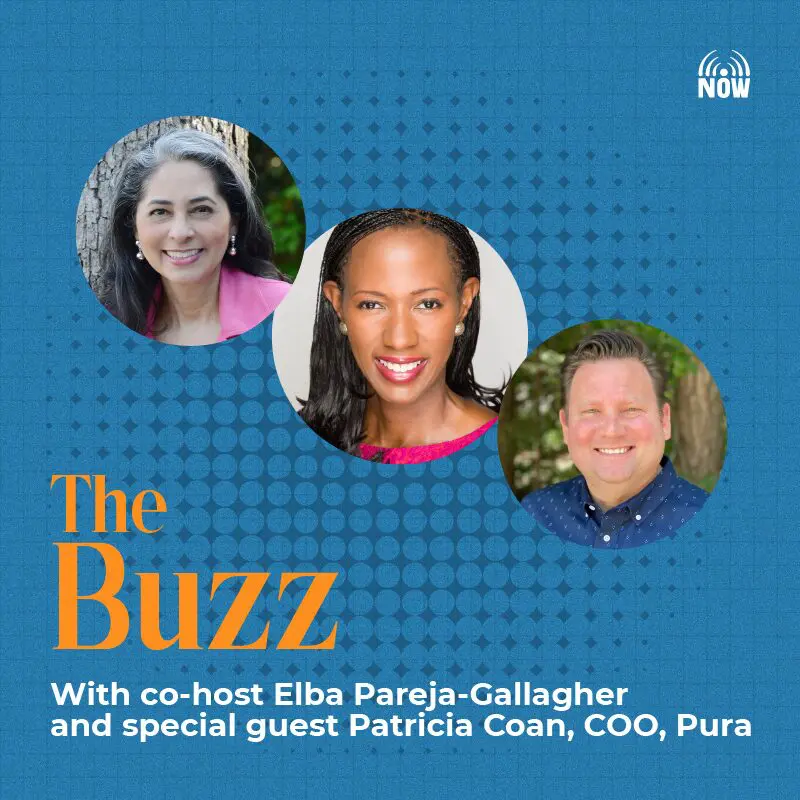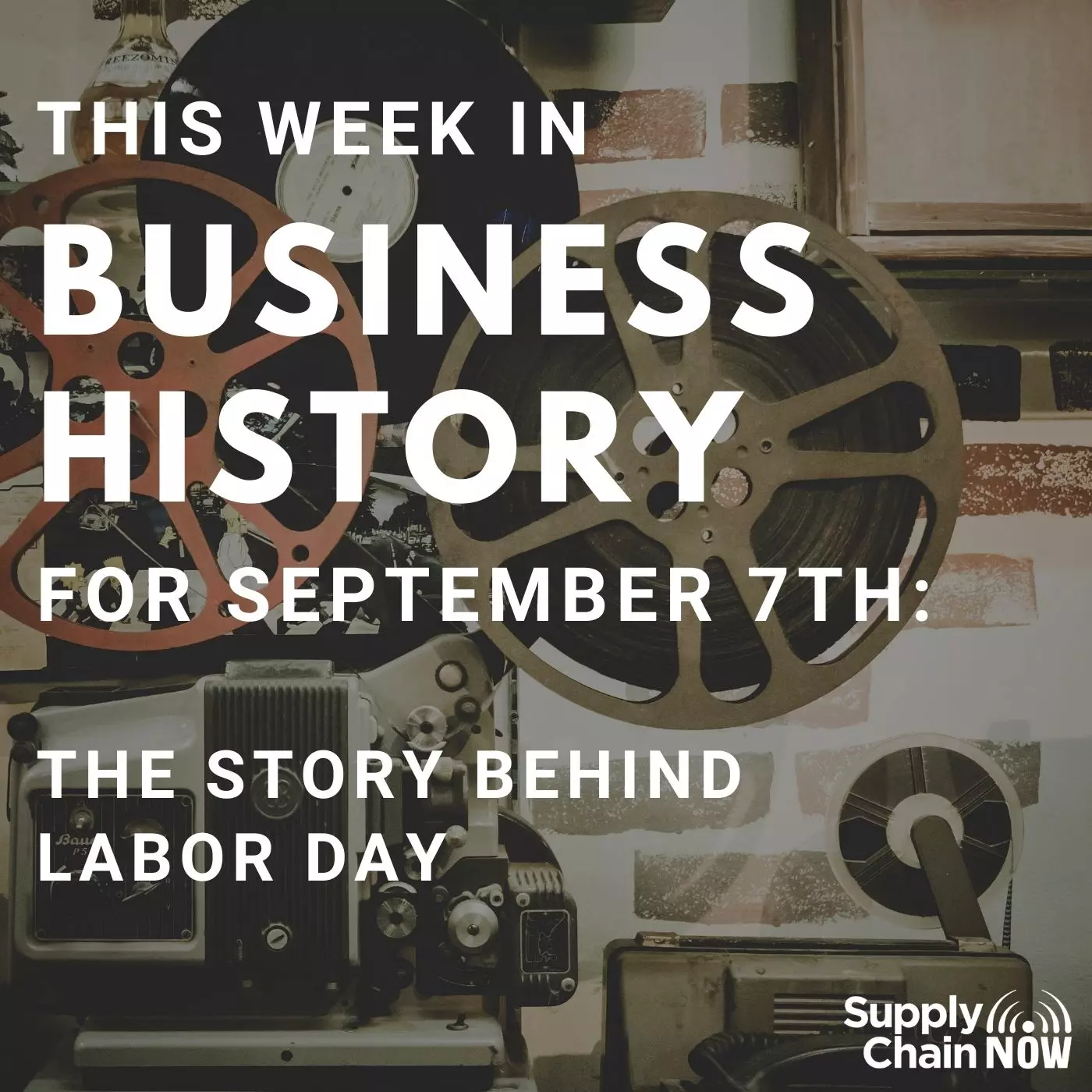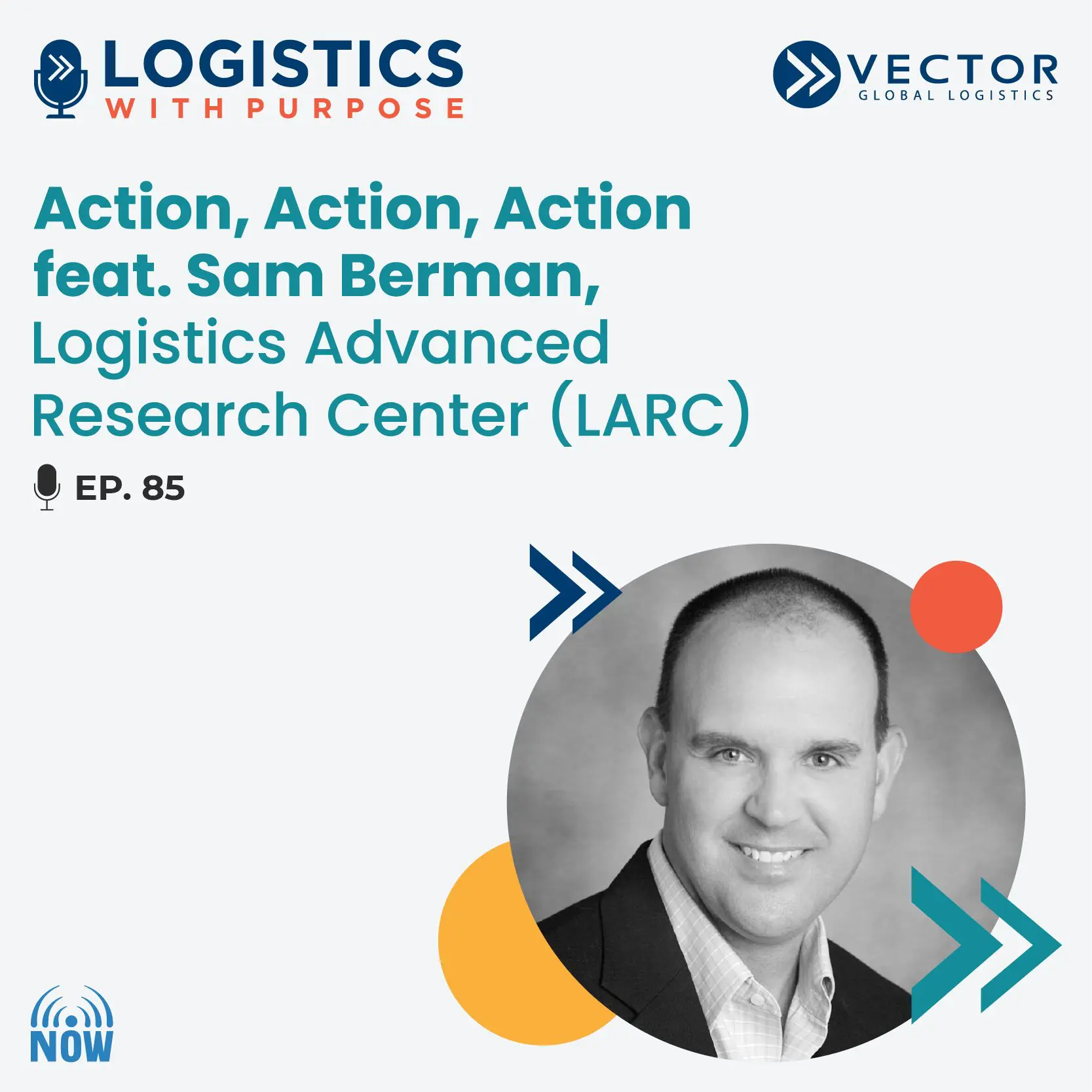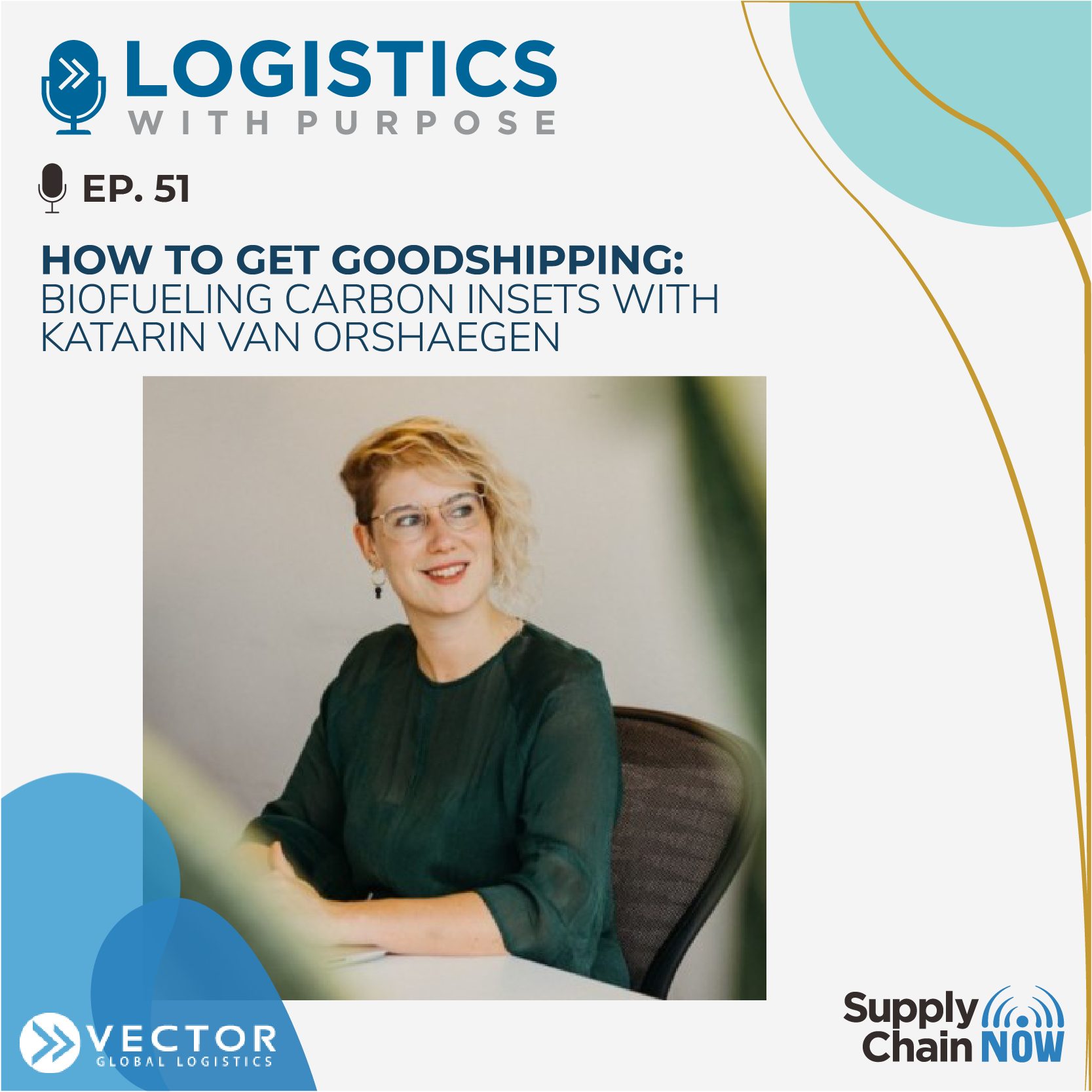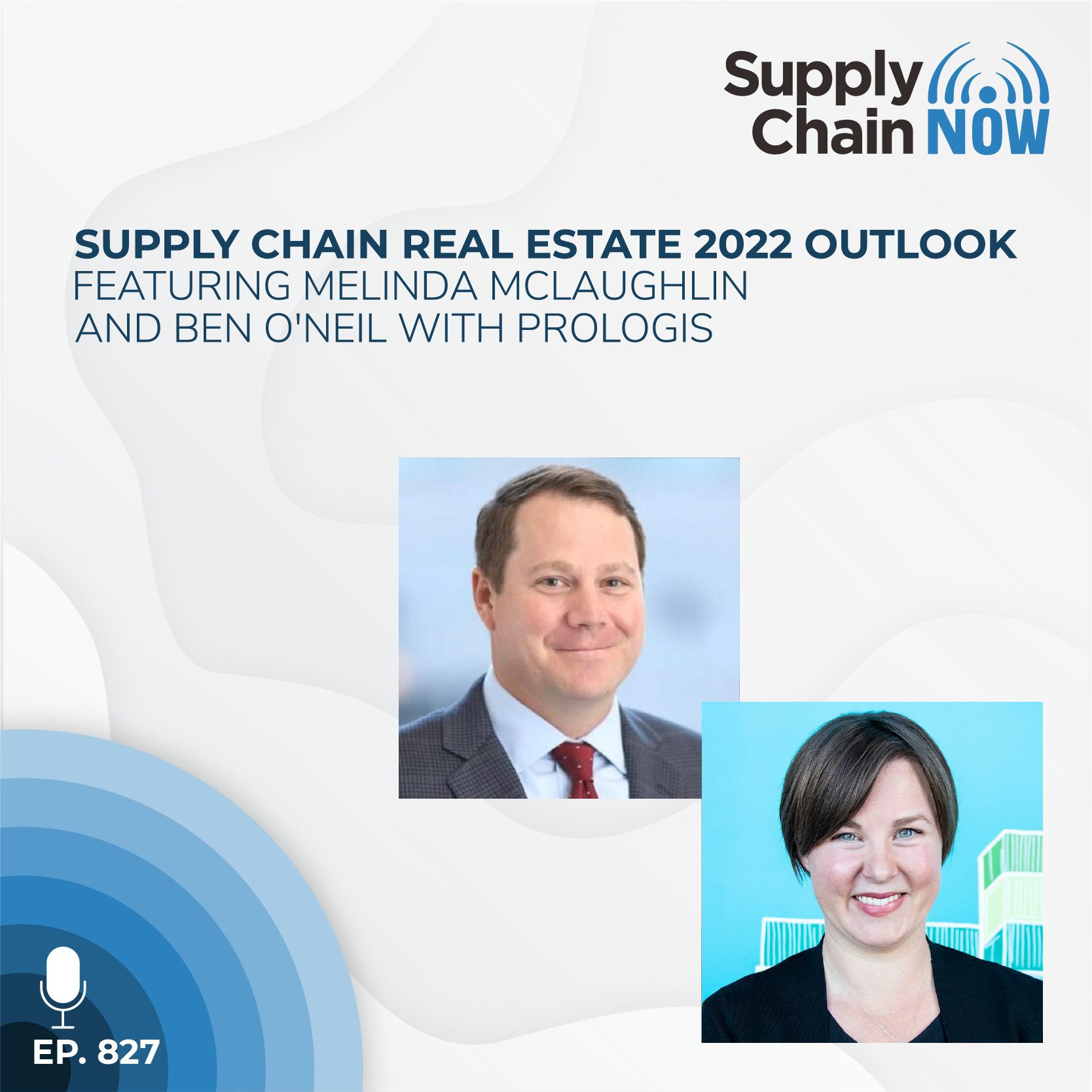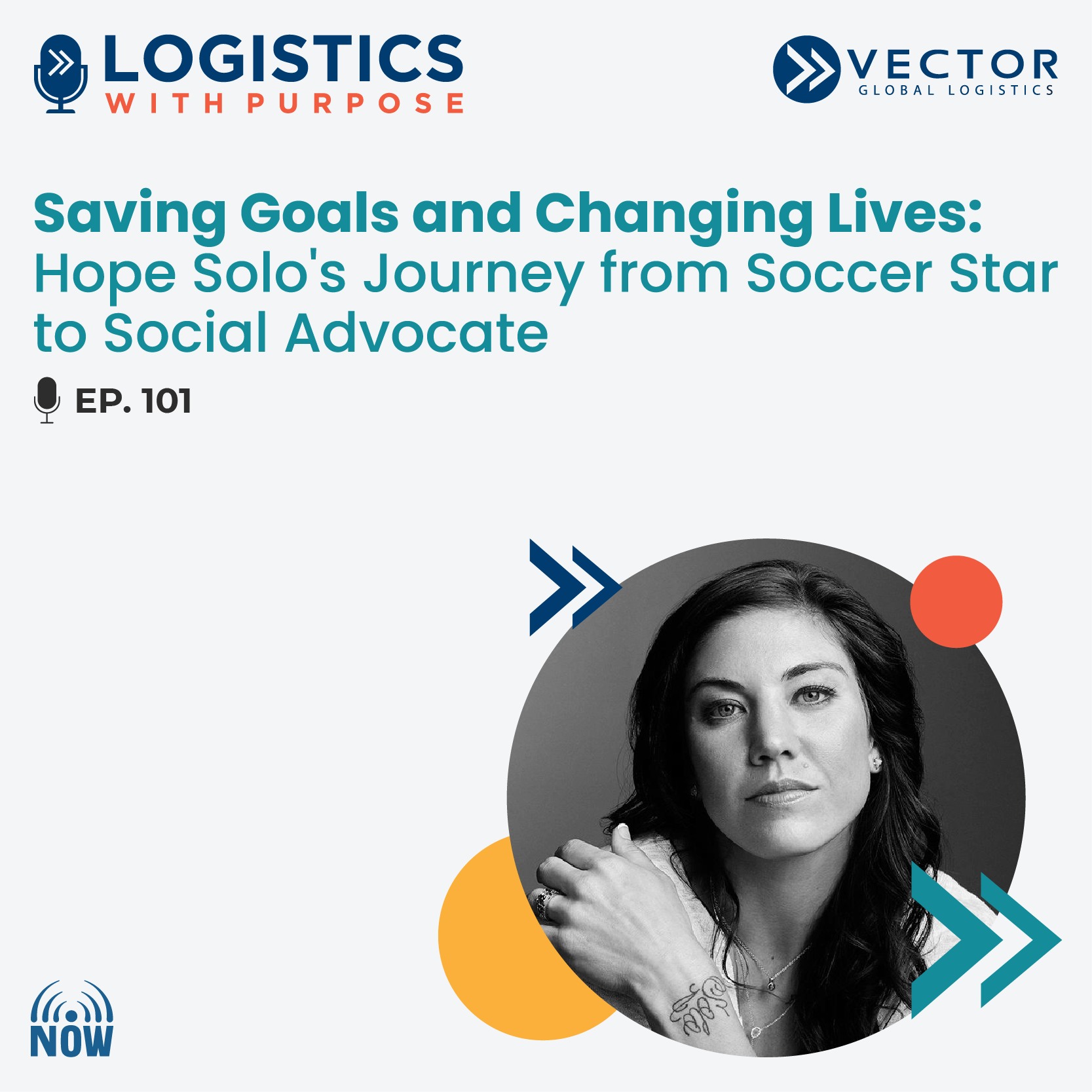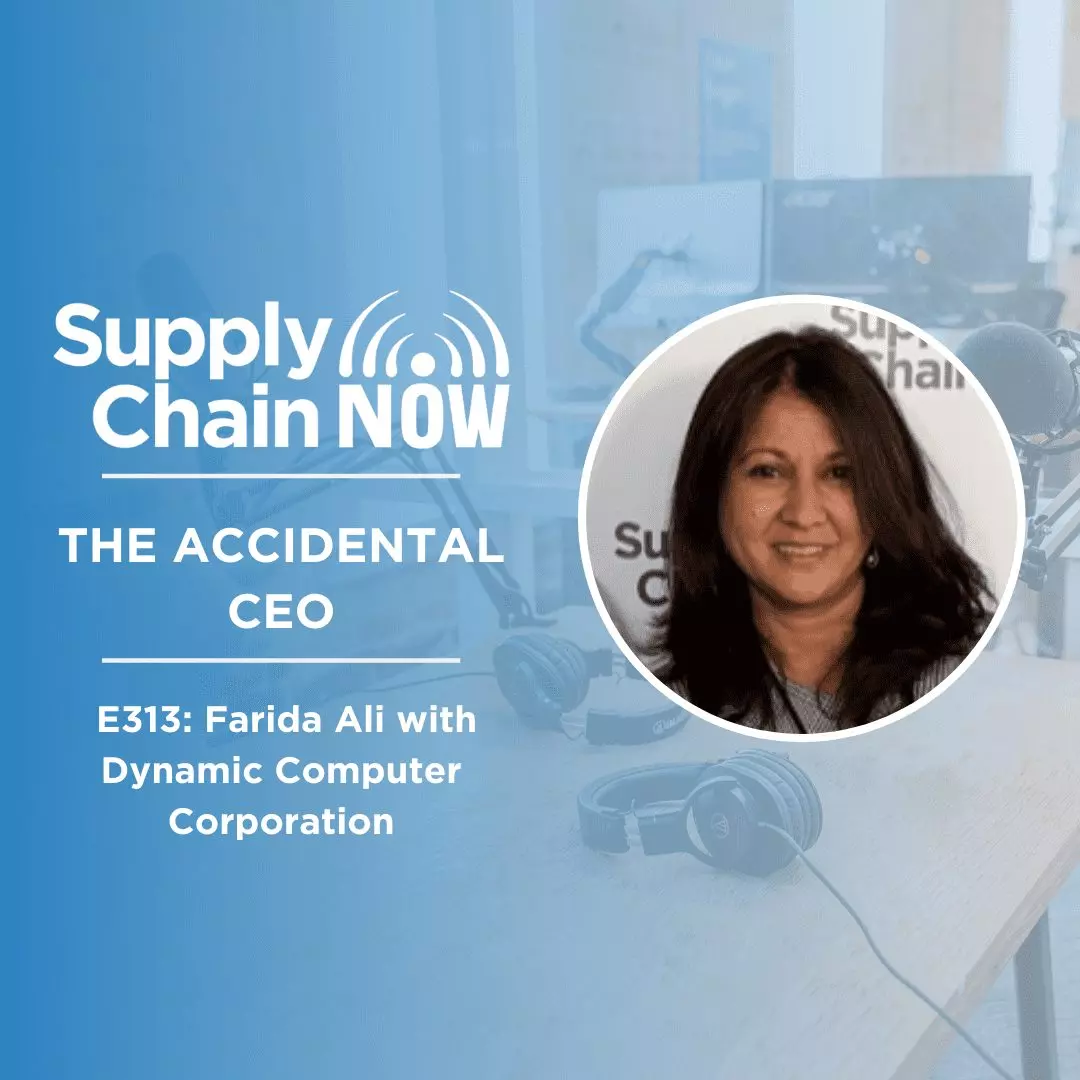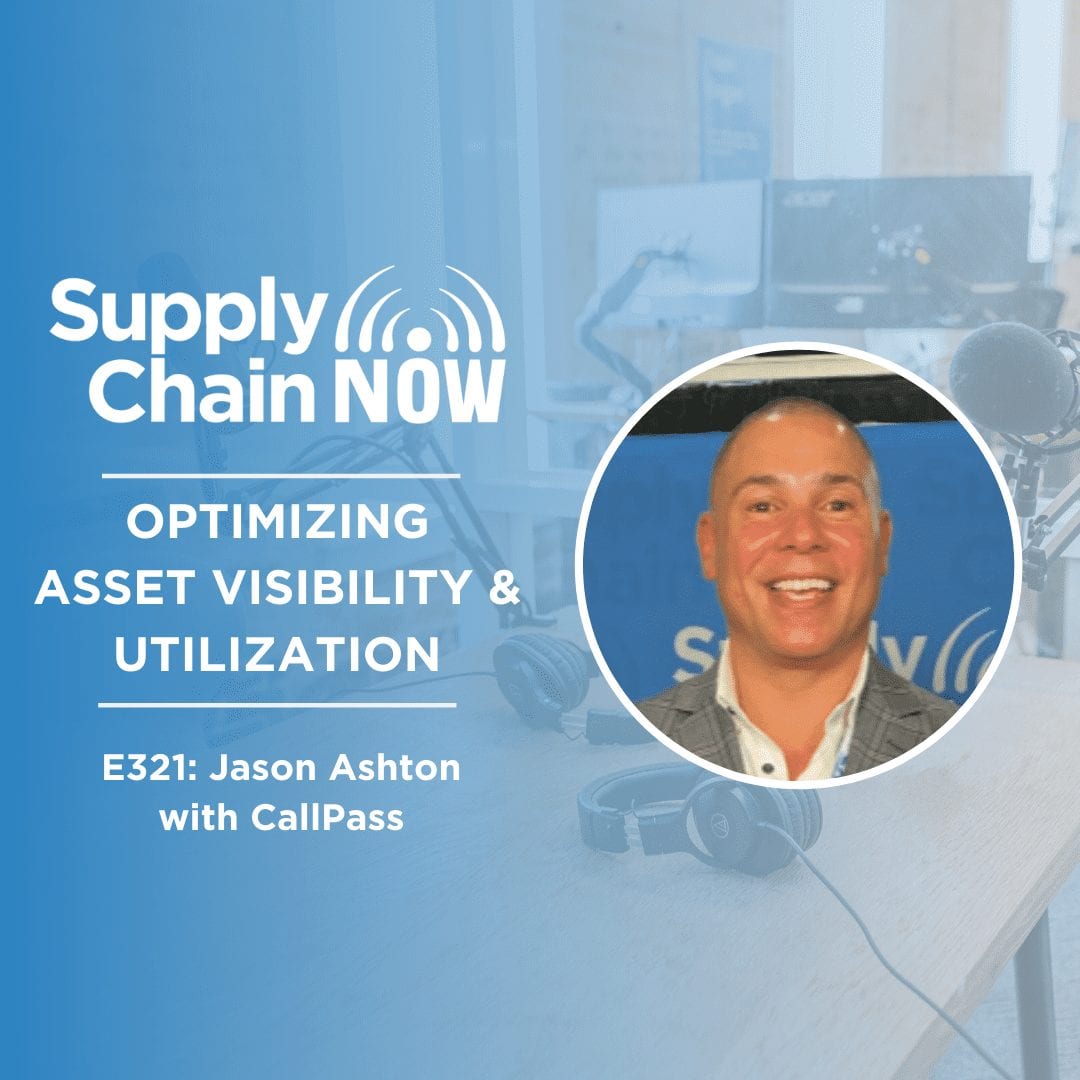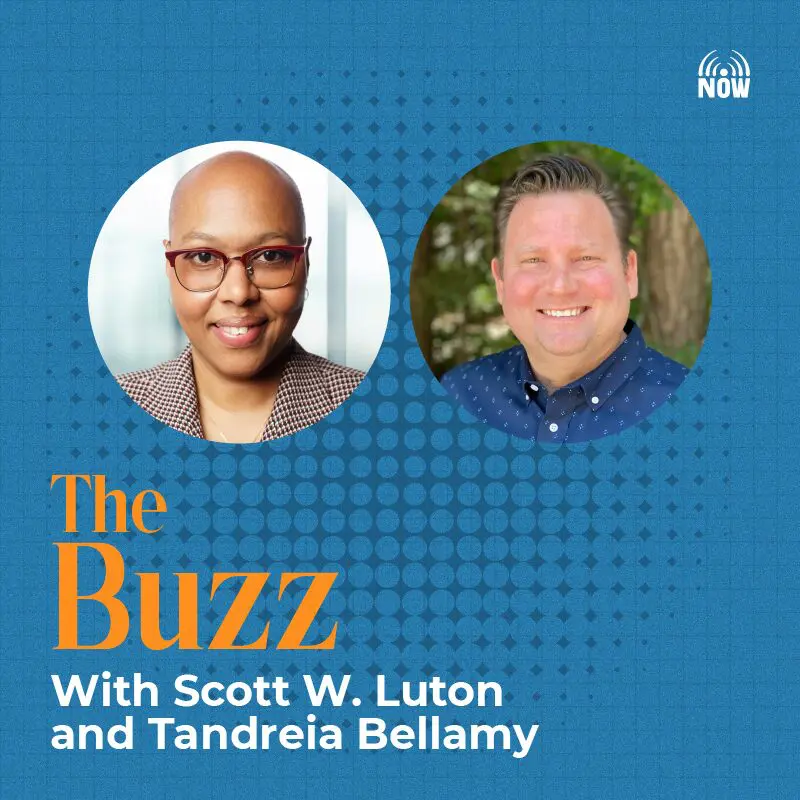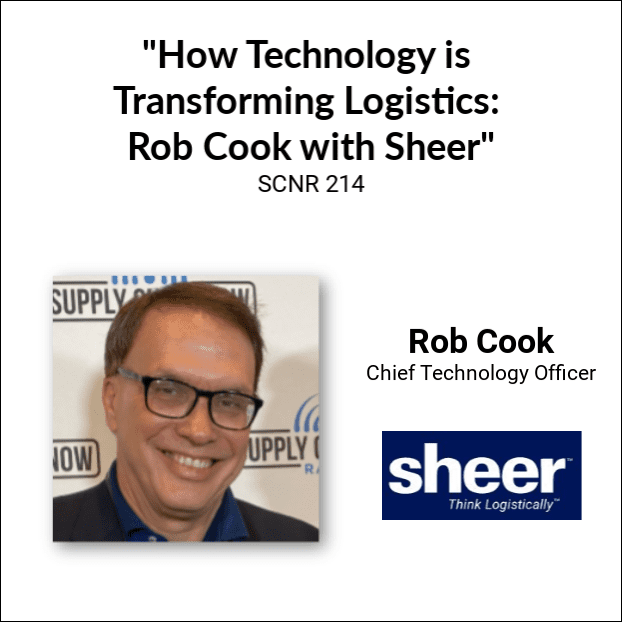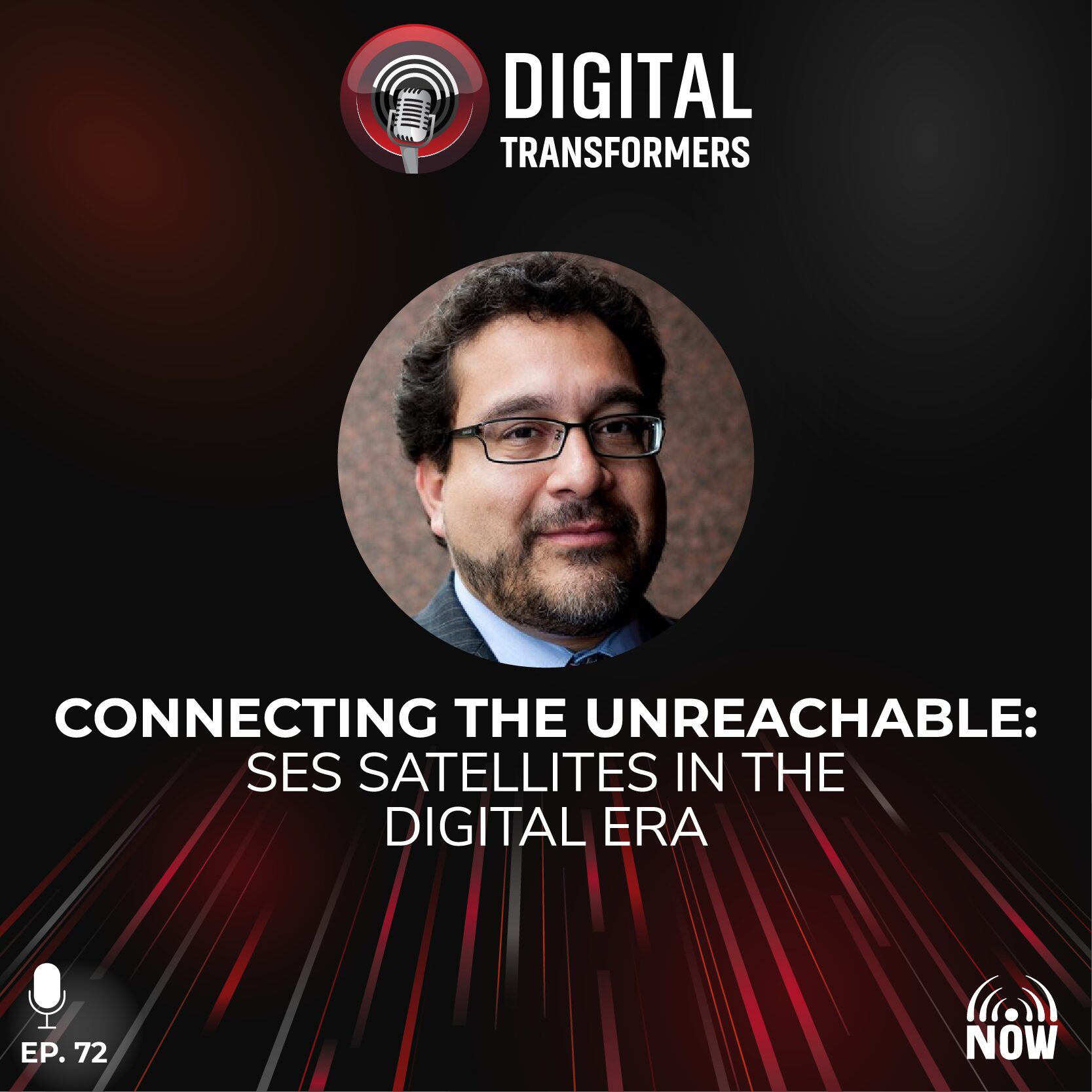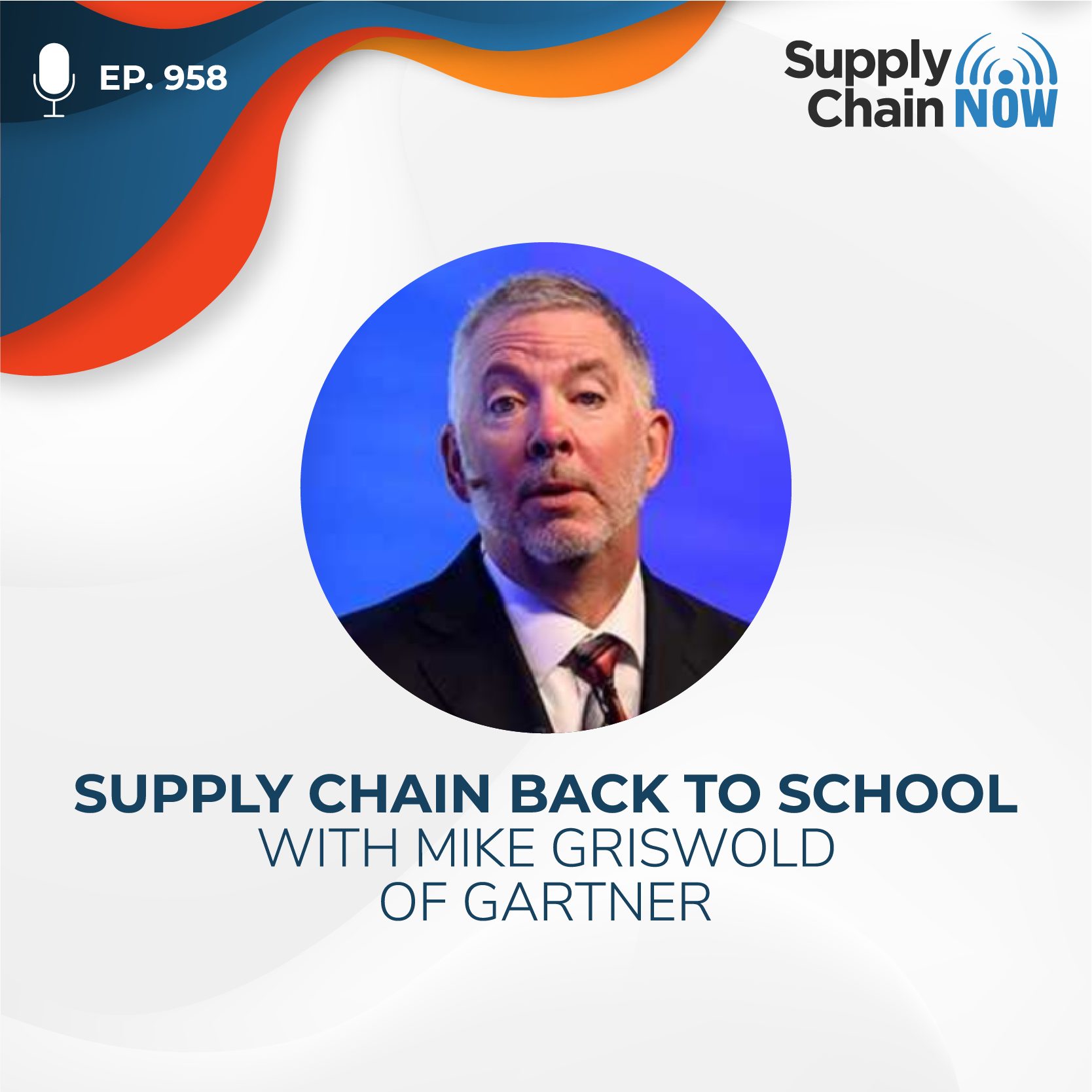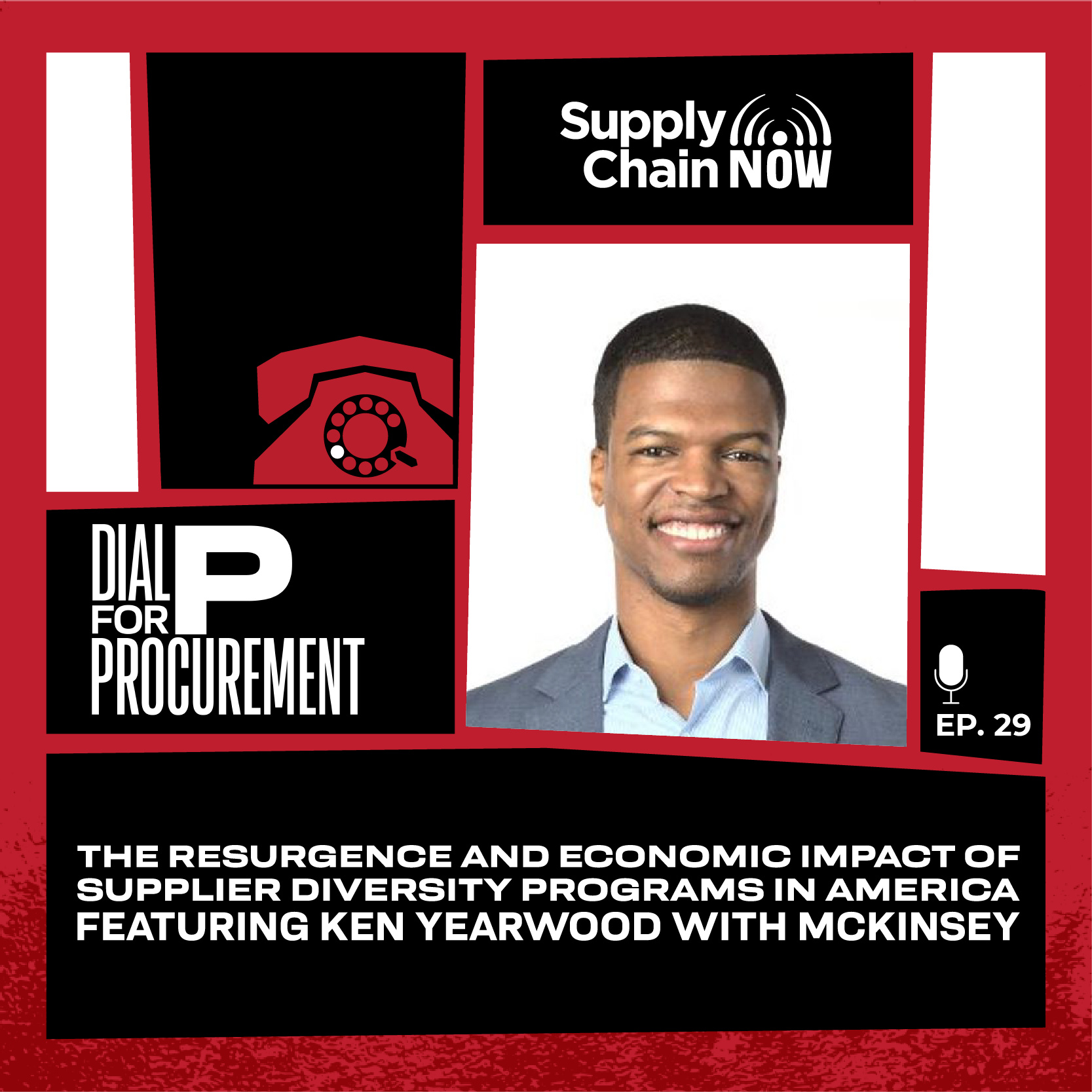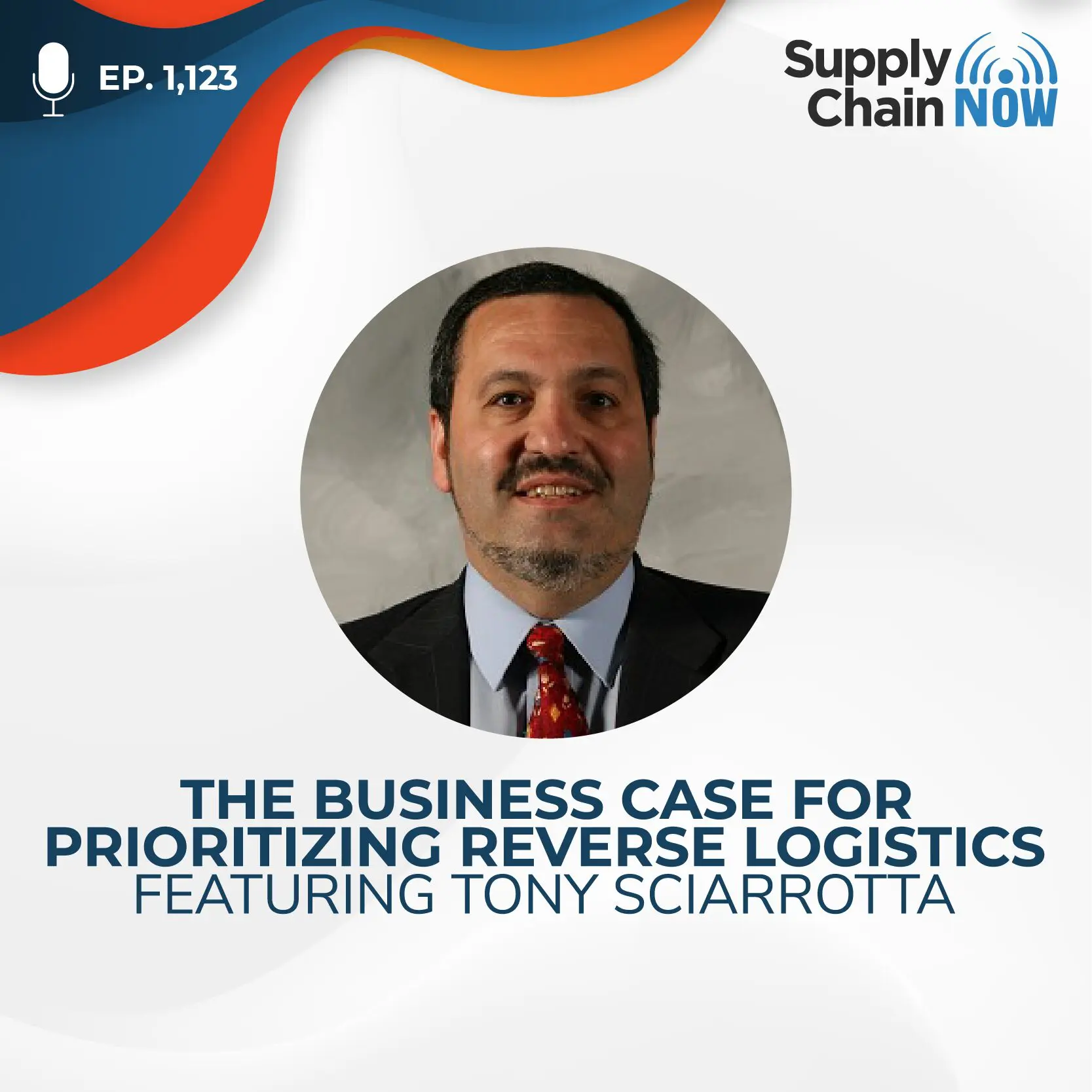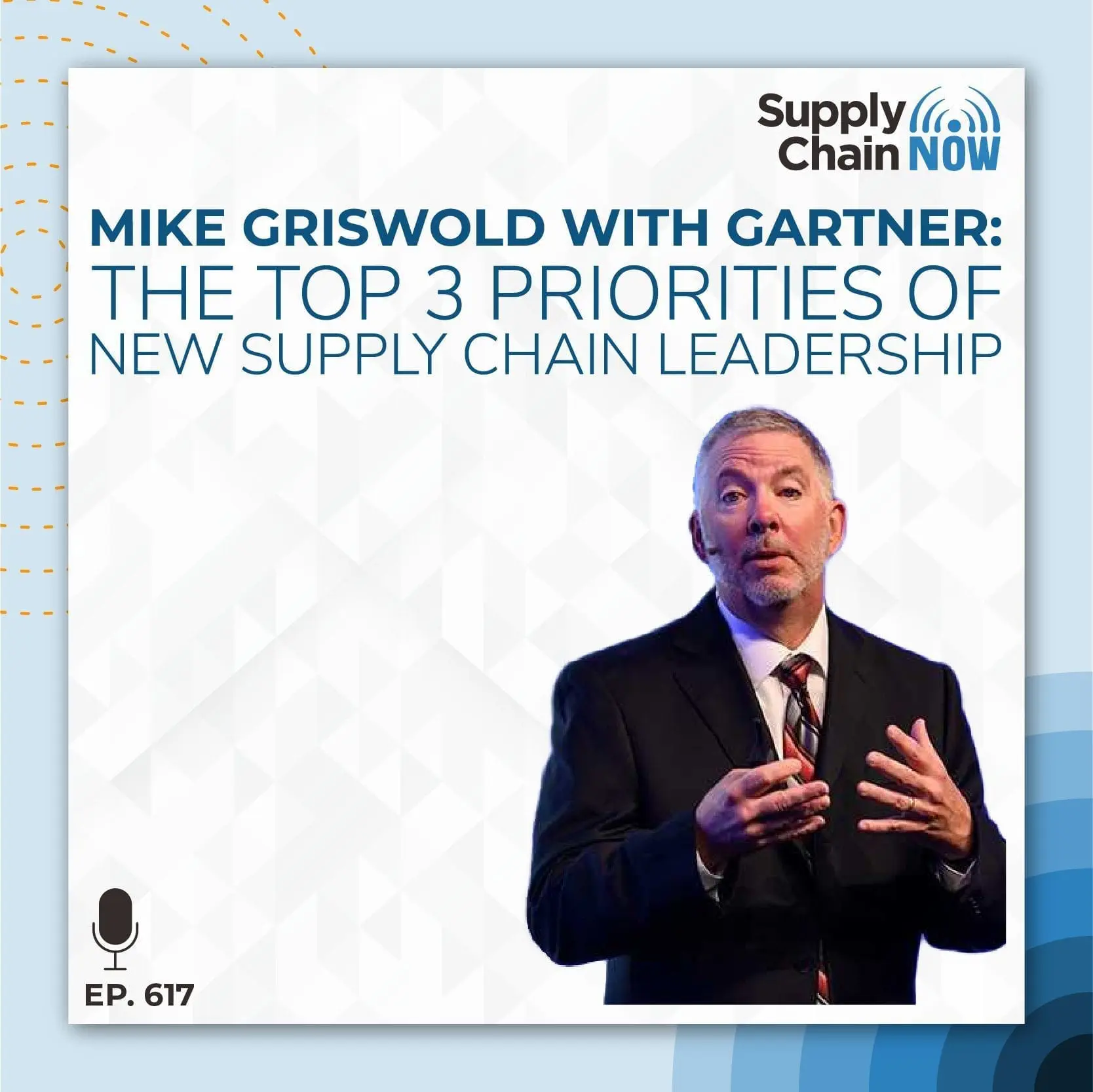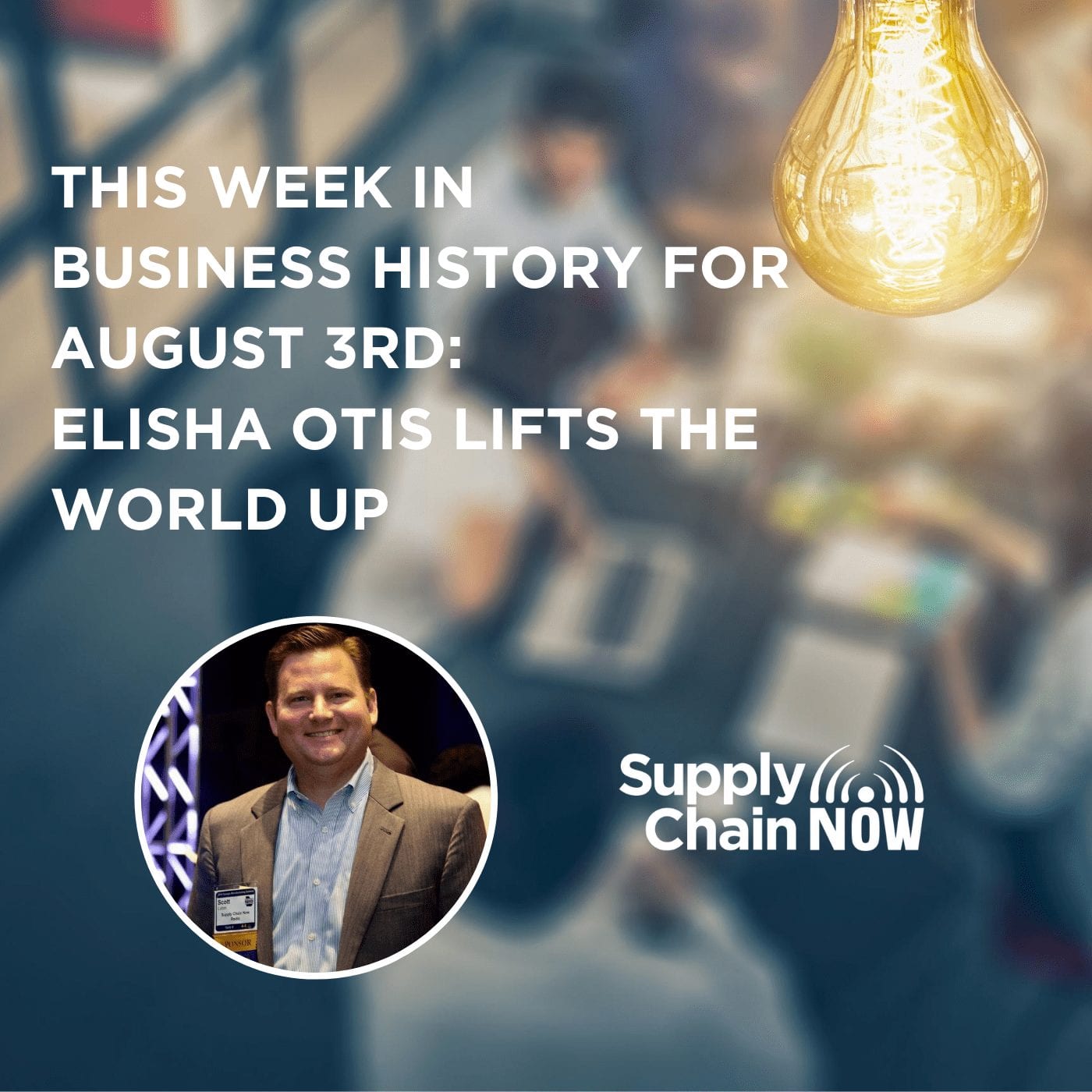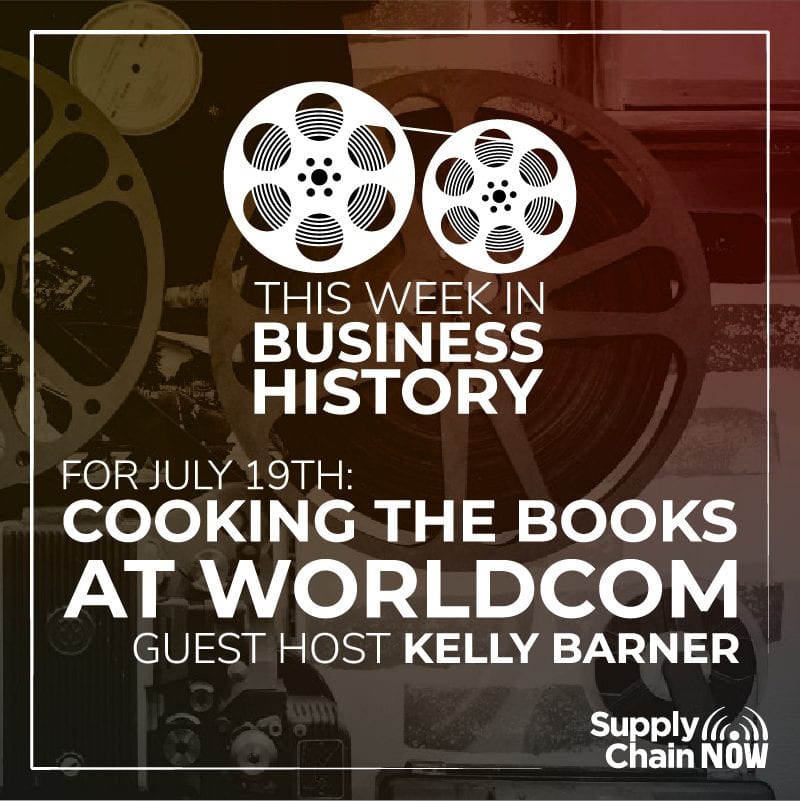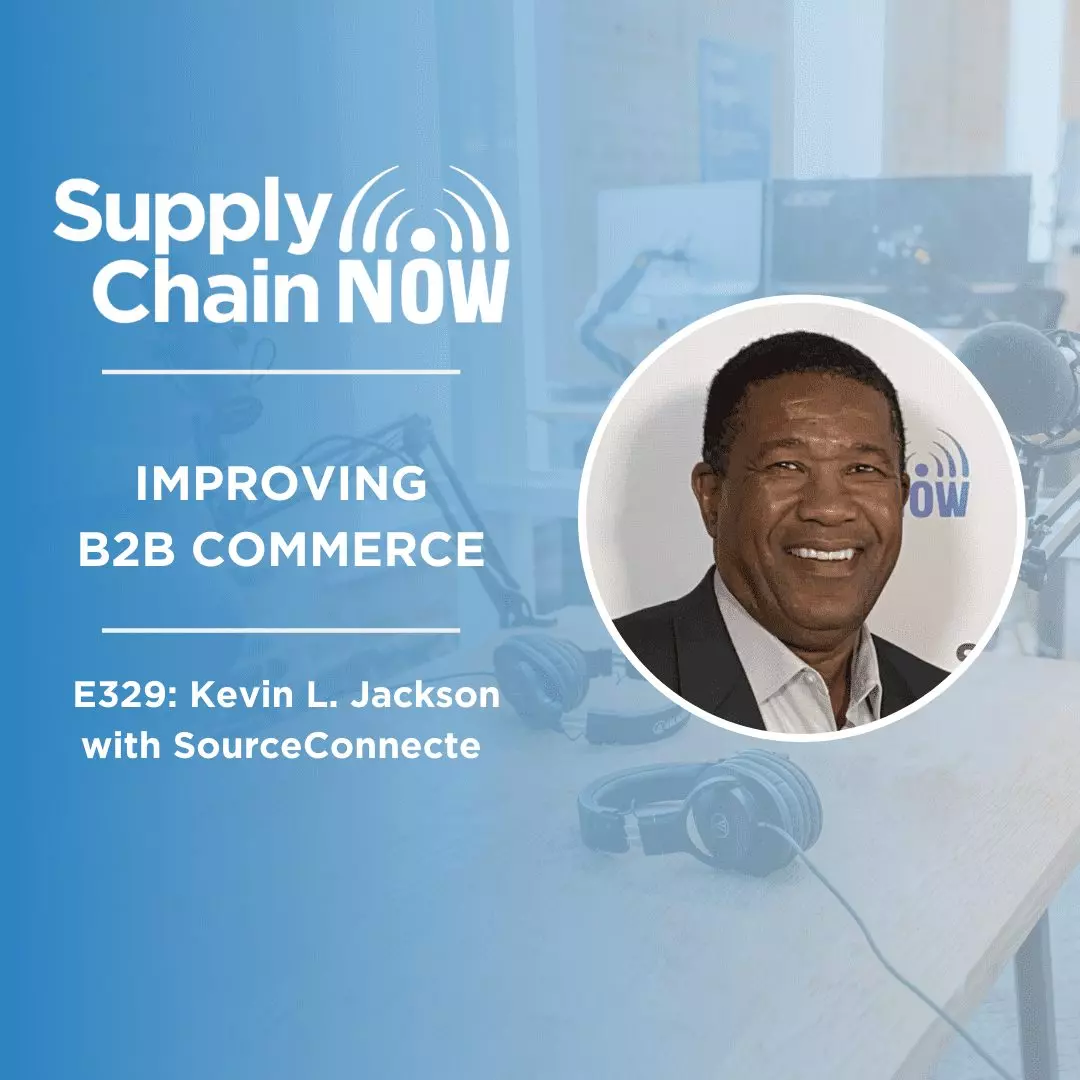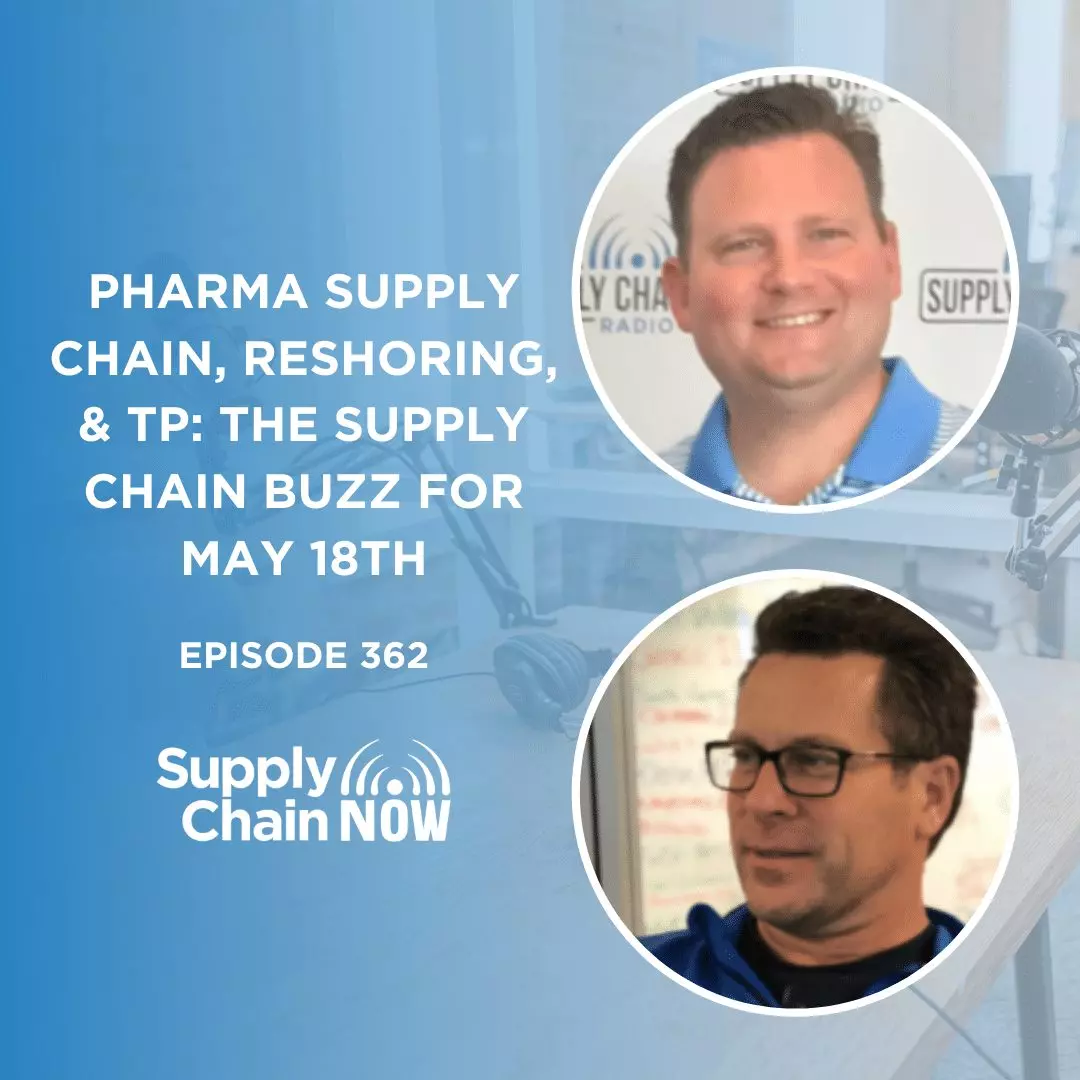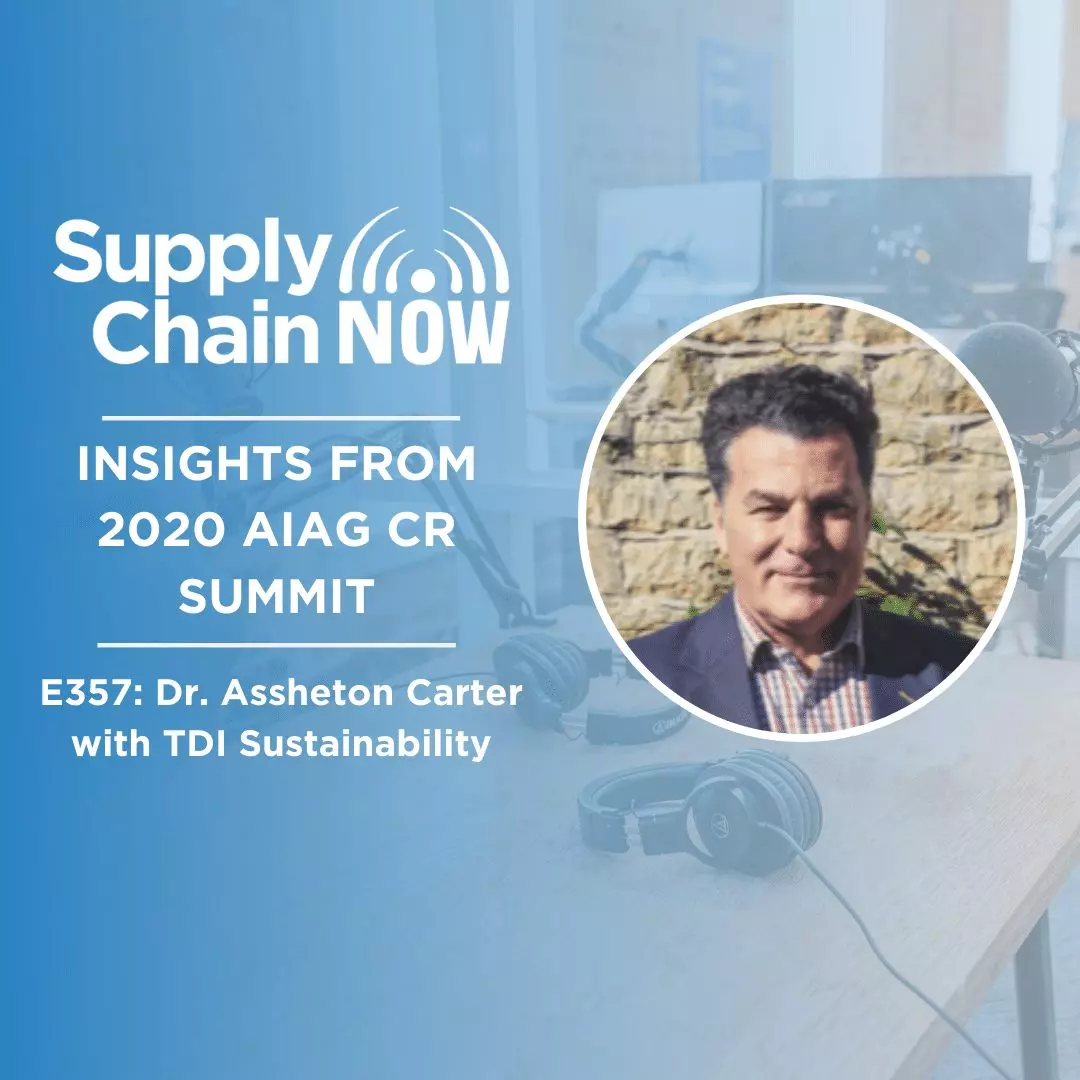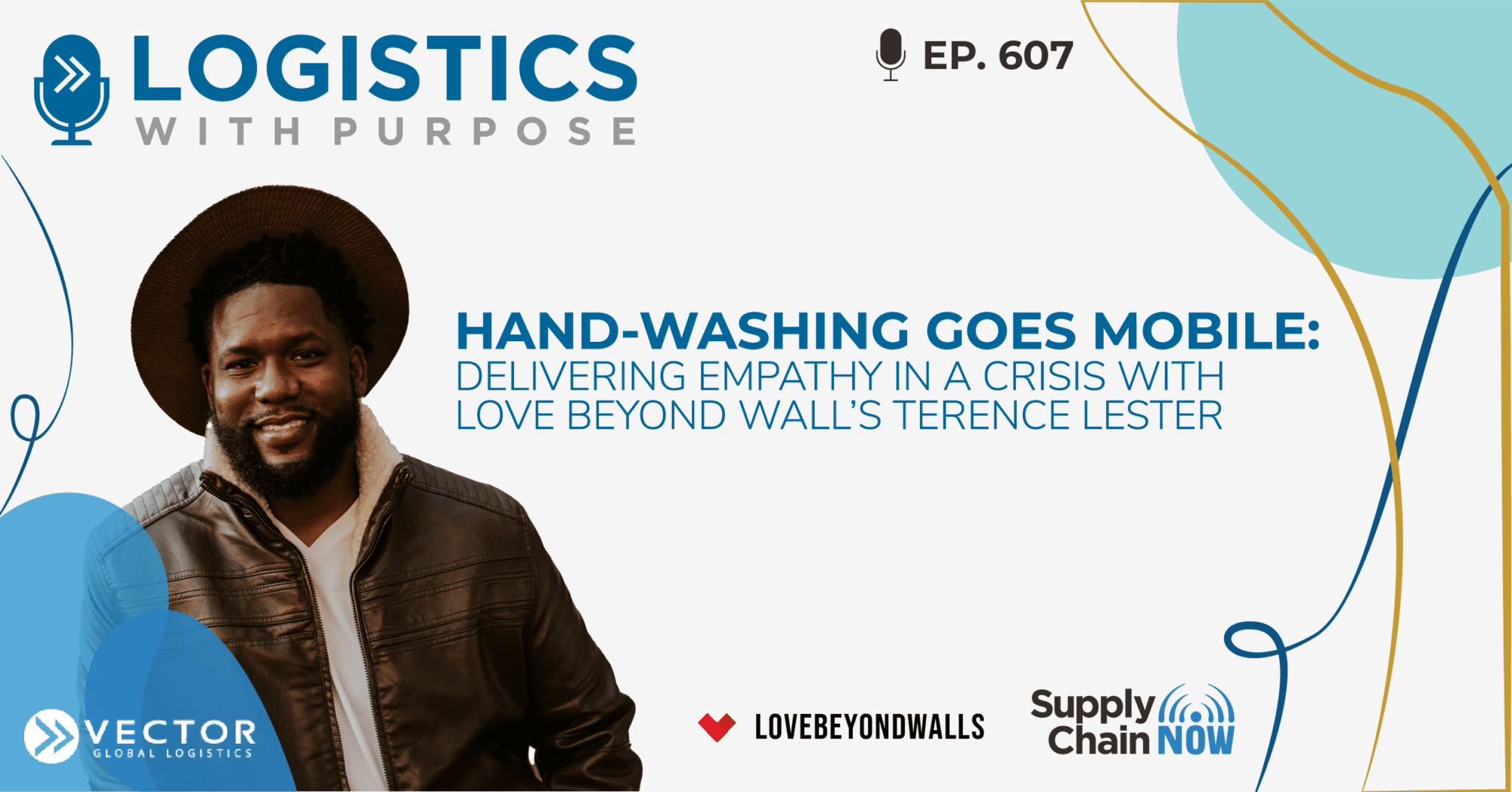
Episode Summary
“Just because you don’t have an address doesn’t mean you’re not a neighbor.”
-Terence Lester
In a year when everyone washed their hands nonstop, Love Beyond Walls Founder Terence Lester turned the focus to those without access to water – and brought the sinks to them. On our first-ever Logistics with Purpose livestream, brought to you by Vector Global Logistics and Supply Chain Now, we sat down with Terence to talk about the power of empathy during a crisis and how it propelled a portable sink movement throughout the city of Atlanta. You won’t want to miss the wise words from this magnetic Atlanta leader shifting the conversation on homelessness all over the country.
Episode Transcript
Enrique Alvarez (00:20):
The first time that I’m conducting a live stream, but I’m really, really delighted and pleased to be here today. This is our first live stream of logistics with purpose as part of the supply chain now, uh, series logistics with purpose, I’m super happy. We have an amazing guest. It’s incredible to always talk to such inspirational, exciting and engaging individuals in this show. Christie, how are you doing today? I’m good. I’m excited for our first live stream, but as you said, I’m more important for both our main guests and our surprise guests. People are gonna love. And both. I totally agree with you. So, uh, go ahead, Christie. Yes. So thank you all. Um, people are tuning in from all over. I’m already so excited to see all the comments from the other side of the world and everywhere in between. So thank you for tuning in.
Enrique Alvarez (01:06):
We’re excited to share today’s message with you. Um, if you don’t know us yet, we are Kristi Porter and Enrique Alvarez from vector global logistics. We are a global logistics and supply chain company who are passionate about people, passionate about getting our clients results and more importantly, passionate about logistics with purpose. So we’re excited to welcome you here today. And we love sharing stories about people doing good in the world from Terrence today. Who’s right here in our own backyard to people who are working internationally and, um, just making a huge difference. So we love just spotlighting people. Um, so we’re excited for you to hear this, um, interview. And first of all, before we welcomed here in sin, if you’re not familiar with love beyond walls, then we want to play a quick video so that you can learn a little more about them. And then we’ll introduce you to Terrence.
Emma Alvarez (02:01):
I was taught growing up that like people experiencing poverty or homelessness or dangerous, or they did something wrong. And so that’s why they’re experiencing what they’re experiencing. I might see someone on the side of the road and like it, it would tug on my heartstrings. I would look away because it’s easier in some ways, just look away. I think coming to love beyond walls and getting to know people and getting to know their stories, even though I might not be able to provide a job or a house, all the things I thought I needed to feel to do before. Um, I think I realized how impactful it can be just to listen to someone’s story.
Emma Alvarez (02:39):
One of the things love beyond walls is active in right now is advocating on behalf of people who are experiencing homelessness and poverty. What I love about being in love beyond walls community is the fact that it is just that it feels like a community it’s time for us to educate about how people who are living on the streets or criminal laws, marginalize their people and they’re going through problems. They aren’t problems. Putting myself in a minority in every sense of the word has wrecked my life in the best way it has brought forth. I think the best things in me, um, and I’m able to use them for other people. I think if everyone was to make a small difference, if everyone was to do something, um, it would make a huge impact. You are part of the solution. What are you good at? What’s your talent? What’s your gift? How can you contribute to your neighbor and use regard given talent to lift them up? You never know how your investment literally transform somebody’s life.
Enrique Alvarez (04:00):
Good morning. Good afternoon. How are you doing today? It’s always a pleasure having you here. I’m doing awesome. Uh, thank you for having me. Good to see you all. It’s a, it’s a really powerful video. And as the video said, it’s really up to all of us to do something about things in life and, and you have a very, very important costs that you have been supporting for quite some time. And we want to get into all that. But, uh, if you allow me for just a couple of minutes before we get in, I actually have a surprise host that is going to join us today. I am a little bit biased, but I really truly admire her. And I really learn a lot of things from her every day. I mean, she’s, I can, without a doubt say that my life’s been way better having her and she’s smart, strong, caring, and, uh, truly for your list. Um, so with us today, Emma, am I, how are you doing today? I’m doing great. Am I heard that you’re skipping classes for them?
Emma Alvarez (04:59):
I am. I’m so excited to learn as much as I can.
Enrique Alvarez (05:05):
Why, why are you so excited about, uh, lobby on walls and, and by the way, uh, Terrence, she is your number one fan. Like she’s been really talking about this and meeting you and having the opportunity to talk to you for a while now. So, but why tell us why you are true. So interested at all.
Emma Alvarez (05:22):
Um, at school we learned, we have healthcare hero posters and they’re all around the building and you’re one of them and like me and many others. Um, we had to write a story about a non-fiction story about the healthcare hero posters, and I chose to do it on tents and I learned his inspiring journey and so many other good things. Now I want to ask you a question, what is a good memory as a kid that you, with your family?
Terence Lester (05:59):
A good memory? Yeah. Uh, I think the, the best memory I have, uh, with my family as a child was going to the swimming pool. Uh, my grandmother and grandfather actually had a swimming pool behind their house. And I would always like to have, uh, you know, family gatherings where we have barbecue cookouts and, uh, jumping off the diving board into the pool. Um, it’s actually the same pool. I learned how to swim and it was just always fun to be around family and, uh, and swim and eat food.
Enrique Alvarez (06:35):
Wow. That’s awesome. What advice would you give to your younger self?
Terence Lester (06:42):
Yeah, that’s a really great question. Uh, if I’m thinking about my younger self, uh, who is in K through 12, I would probably say, uh, to listen, um, to make sure that you listened to, uh, your teachers, your educators, your advisors, but most importantly, your parents. Um, there’s a lot that we can learn, uh, from listening. Uh, not just listening to people that we know, but also listening to the stories of people that we don’t know, uh, that are inspirational and inspiring and get back and teach us about the world. Um, listening is so powerful because it gives us an opportunity to, um, to grow and be our best selves.
Enrique Alvarez (07:26):
There is, uh, thank you so much. And before I let Emma continue with her questioning and, uh, I I’ll have her here to ask all the tough questions I wanted to say welcome to our audience. And I want to say welcome to Robert Brossman, uh, Shahid my hash Nikila, uh, Peter Boyle. He’s been with us. Uh, he follows us on, on every single live stream that I’ve been on at least, Hey, Peter, it’s a pleasure to have everyone here. And there’s just a lot of people. So interested in learning a little bit more about you and love beyond walls, honey, uh, from the Netherlands. Uh, we have a lot of people from all over the landscape from books where Africa we’ve worked very closely together with them. So, Hey, Pat, thanks for joining us. Who’s the, Nicolson a lot of others I’ll continue to read, please. You have any comments or questions for parents or for the show, feel free to just add them on the comments section. I will, I’ll make sure I’ll try to feed in some of them, but, uh, with that said, go ahead and have a couple more questions. You were homeless at some point in your life. Can you tell us a little bit about that?
Terence Lester (08:35):
Sure. Um, firstly, I just want to say Emma, thank you for, uh, being so inquisitive and asking all these questions. I think this is a great way to continue to grow in your development and as a leader, uh, I see you as a young leader and uh, thank you for asking questions. Yep. Uh, to answer your question, I experienced homelessness, uh, temporarily when I was a teenager, I got a chance to meet one of my friends’ fathers who was, uh, who became a mentor to me. There were times when I wasn’t able to physically stay in my house. And so I, there were times when I was sleeping in parks and, uh, from friend’s house to friend’s house or, uh, times I was even, uh, living out the trunk of my car as a high school teenager. And so one of the things that became a real benefit for me and even an opportunity is what I just mentioned earlier when you asked what’s the most important thing that you can do, uh, which was listening.
Terence Lester (09:37):
And I got a chance to listen to my friend’s father who became my mentor, gave me guidance and encouragement and gave me an opportunity to see the world differently from what I was physically in, experiencing in my, in my reality. And so with his encouragement, I actually, uh, was able to finish school, uh, go on to college, uh, form of family on my own. And he was actually the person that inspired me to lunch and start lobbying on walls. And the first year I actually started loving on walls. Uh, I found out that he had cancer and he passed away, but I’ll never forget the lessons that he taught me, uh, the inspiration that he gave me and always seeing the best of me. And I try to model that within the context of my own life, affirming the dignity of anybody that I come in contact with, uh, address or not, because like I always say in many of my talks, just because you don’t have an address does not mean that you’re not a neighbor. And so, um, that’s the message that I try to get across to anybody I’ve come in contact with, uh, to see people.
Enrique Alvarez (10:45):
Thank you, Terrence. Yeah. And we also are just again, when acknowledge everybody hanging out in the comments, thank you, Shahid for joining us, even though you’re tired from work. Um, I think you’re also on the other side of the world from a Syrian Atlanta. So thank you so much in, um, as Enrica said, we’re happy to put any of the questions you have for deterrent. So if you have questions, then please chime in. Um, we have some of our other friends joining us. Hey Adrian. Hey, um, Scott, Hey, it’s so good to see friends here. Hi Jim. Um, and then all the new friends that we’re meeting as well. It’s so fun. India, UAE, Saudi Arabia. Thank you so much for joining us. We’re excited to be here and mostly we’re excited to share Terrence’s story, um, with you. And as you can see, it’s a really interesting story and he has a lot of insight to share with us. So please, if you have questions, then we’re happy to, I’m happy to get them answered for you. Emma’s are Oprah. She will get the answers out of him. So, but anybody else who has questions, then we’re happy to pose those as well. So thank you. And I think Emma has another question for you too, Terrance. I just want to say thank you for your answers. That was really inspiring. And I to know what your favorite
Emma Alvarez (11:54):
Part is about your business. Really great questions again, thank you for,
Terence Lester (12:00):
Or, uh, being such an awesome host and, uh, uh, special guests. I think the most joy I get out of, uh, the work that we do is a twofold one. It is, uh, being proximate and getting the opportunity to be, uh, close and befriend. So many wonderful people that are overlooked. I’ll never forget. I was interviewing, uh, one of my friends named Tyrus and he, uh, was without an address. And, uh, he was talking about fear, but he was talking about, uh, fear and what it does to him as a person who doesn’t have an address. He talked about how the fear that others have of him actually did damage to his self-esteem. He says, when people lock their doors or they roll up their windows or they turn their heads away on purpose and intentionally, that hurts me. Uh, and basically what he was trying to communicate was he says, I’m a father, I’m a, I’m a brother, I’m a son, I’m an uncle.
Terence Lester (13:08):
And he started listing all of these characteristics of, uh, what he was. And then he said, he goes on to say, I’m Tyrus. Um, somebody worth being seen, um, and where I am right now, doesn’t necessarily define my worth and value. Those stories are so powerful because, uh, we get a chance to affirm the dignity of people who are overlooked, who are deemed invisible and who are criminalized, even when a person doesn’t necessarily know the story that got a person into the experience of homelessness. I think, uh, suffering is, uh, in pain is universal and that at any given point, uh, we can all find ourselves being one paycheck away or one life event away, or one experience away from the experience of homelessness. And I think that we have to, uh, push back against the notion of defining and labeling people based upon one experience, because everybody who arrives in this plight doesn’t necessarily have a mental health issue, or they’re not addicted to a substance.
Terence Lester (14:11):
Some people lost their jobs. Some people, uh, became physically ill. Uh, we’ve seen this happen time and time again, uh, during COVID-19, uh, some people lost, loved ones. Um, my S my, my wife and I actually lost our brother, uh, to COVID at a very young age. He was 38 years old. Uh, and we even saw how his family, uh, after the loss of income had to be transitionally and temporarily homeless as well, my nieces and nephews. And so these are real things that people go through and we can’t, uh, sit back and allow, uh, what we’ve heard about, uh, people experiencing homelessness to define how we treat them. And then the second thing, this, uh, I get a chance to educate people about the real and raw realities about what people face, uh, every single second, uh, like, uh, my friend Virgil, who says he uses a rain bucket to collect water.
Terence Lester (15:06):
When it rains, he says, I literally have to pray for it to rain. And when it rains, I get all this water in a bucket and I sit it out in the sun just so I can bathe and clean myself. Uh, we don’t think about the times when we toss a half empty water bottle in the trash, if someone uses that to brush their teeth out of, uh, we don’t, uh, uh, think about when, uh, we throw or Taso old pair of socks away that somebody is using those same pair of socks as gloves during the winter. We don’t think about, uh, the damage it does when we actually look down on someone. And so being able to educate people about those realities helps to build empathy. And I think in this time that we’re in right now, we have a real empathy deficit. And just like one of my friends who is an author, her name is, uh, um, Belinda. She wrote the book called brave soul. She says, empathy is the virtue that is muscular enough to deal with the complexities of our time. And she’s talking about compassion and empathy and seeing people. And I just love that, um, as a part of the work that we, we get a chance to do.
Enrique Alvarez (16:12):
Awesome. Thank you so much for sharing that. Um, I feel like I see you everywhere. I turn in Atlanta because everybody knows who you are and you’re doing such incredible work here. So I’m excited for the rest of the world. You could keep hearing more about you. And so can you, you gave us a little bit of the backstory for love beyond walls. Can you tell us a little bit more about what you were up to before the pandemic? And of course you made national headlines early on in the pandemic, not just for the amazing work that you’re doing, but because you had such a quick pandemic pivot. So will you tell us kind of before, um, in the few years leading up to the pandemic, what you were doing, and then now how you guys have transitioned and what you’re working on now?
Terence Lester (16:50):
Uh, it’s a great question. So traditionally we have a center in college park, uh, which is probably two miles outside of Atlanta, but we are considered housed in Atlanta. Um, uh, for a number of years, we use the center to, uh, give people access to technology. I mean, gosh, we’re using technology right now to even communicate. Uh, and you think about the number of people experiencing homelessness that don’t have access to a technology. Uh, we use our center to help people recover their identification cards, but because oftentimes when you don’t have ID, you can’t get a job. You can’t cash, a check, can’t get housing, you can’t open a bank account. Uh, you can’t drive a car, uh, a number of things that it takes to function day in and day out. You can’t do. If you don’t have this one piece of identification that proves you are who you are.
Terence Lester (17:48):
Uh, well, there’s a problem that because you need ID to get what ID. Um, and so there’s, uh, you know, times where we were partnering with lawyers, uh, to solicit these, uh, critical pieces of identification, uh, to help people transition out of homelessness. Uh, we use our center for, uh, temporary housing. Uh, we, uh, traditionally use RV units that were donated our organization, uh, to provide spaces, uh, where we can intentionally and approximately work with individuals that we have the friend to help them walk out of the experience of homelessness. Uh, we had, uh, you know, free showers. Uh, we belong to a museum for people to come in and visit and be educated about the experience. So a day-in and day-out, we were constantly, um, you know, immersed into engagement community. We have food co-op, we were doing a number of things. And then when the pandemic hit, it kind of altered a lot of things because our volunteer led or [inaudible], uh, we went from seeing, you know, five, 600 volunteers per month, uh, to less than 10, uh, because initially, uh, you have all these volunteers quarantining and, uh, being physically distant from one another.
Terence Lester (19:05):
And that kind of caused us to have to make some tough decisions about how to do, let me pivot, how do we continue to show up for our community? And I’ll never forget, uh, we had this guy named Demetrius, uh, come into our center, um, and he had come there for food resources and, uh, to leverage, uh, communication, to use the phone. And he started saying to everybody in the center, I’m afraid that I’m going to die, literally his words, because I have nowhere to wash my hands. I keep hearing, uh, that you’re supposed to wash your hands and how do I do that? Because I can’t access water. Um, and yeah, because our organization is poised to respond to the needs, as opposed to being, uh, a conveyor belt model. Uh, we always are open to how, um, we can actually meet the needs in front of them in front of us, like real time.
Terence Lester (20:04):
And so I, I had this idea, I started thinking about the RVs that we were using to temporarily house people and how a lot of them have features like portable cooking station. Porta-potties where people can use restroom, portable hand washing stations. And my idea was to take this, uh, feature that was already in existence and repurpose it to service a population that I knew would be, uh, locked down and shut out of many facilities, because they were already used to not being able to access, uh, water and, uh, not being able to go to in public spaces, et cetera. And I remember telling my wife, Hey, I think I’m going to put sinks in the middle of the streets and, you know, for people to have access, to wash their hands, if you don’t have access to that water. And she says, yeah, you used go and do it.
Terence Lester (20:51):
And around that time, uh, my friend Lecrae reached out to me and he’d donated the first 15 and 15 turned into over a thousand, uh, right now, uh, that we have placed all around the United States. Uh, he shout out to Victor, uh, global, uh, which you don’t want me to shout you out, but I am because, uh, your logistics company helped to get a mass amount of these portable hand washing stations. So people who are living on the margins of society have the access to sanitation because sanitation is a, is a human right. And so, um, here recently, I just told you a story about, uh, Virgil. And so here recently, we’ve been taking the 250 gallon tanks. Uh, two of those we’ve been, uh, uh, re repurposing those because they’ll be thrown away and turning them into a self-contained portable showers. Uh, so that’s where we are right now. We’re pivoting to sanitation and we’re still on the front lines providing, providing this critical reason.
Enrique Alvarez (21:52):
That’s a, it’s amazing what you’re doing. And, uh, it’s just, uh, we’re very proud to be not only talking to you here, but with you and your team, I’ve seen your guys work firsthand and everyone is super committed and passionate Peter here, a really good calming Peter really crazy part as being homeless can happen to anyone at any time due to no fault of their own. We need to extend our hand and support Bravo, Terrance. I mean, there’s people flooding this comments and, uh, I can’t really keep up with them, but, uh, it’s, it’s great. Uh, great. What you’re doing. Uh, another comment here, Simon Joyner. This is actually a question question to you, Terrance. When did you know that you needed to write ICU and how did you feel writing it?
Terence Lester (22:36):
Yeah, that, that is a, a great question. Simon. I was, it was 2016. I was sitting in the office on a Saturday. We didn’t have any programs going on, but I was doing some administrative work and there’s a knock at the window. There was an elderly lady, she was 69 years old. And she says, you know, I heard there’s an organization helping people with food. Like I haven’t eating, even in a few days, I don’t have any more of my social security, uh, funds. And so, uh, I got up and I walked outside. I looked around the door and I, I didn’t see a car. And I said, well, how did you get here? And she says, wow, walk. And I put the address in to my phone and it was seven miles. Uh, this lady had walked seven miles just for a bag of groceries.
Terence Lester (23:24):
And it started to, uh, you know, really cause me to think about many of the people that actually access our community center that are walking tons and tons of miles, uh, just to access resources. This lady actually inspired one of the campaigns that we launched called maps exceed, uh, and map 16 was a March against party where, uh, uh, my family allowed me to walk from Atlanta, Georgia all the way to the white house. Uh, we actually turned this campaign into a documentary film called voiceless, where we interview all these people in different parts of the United States of America, about, about their struggles with poverty. And along the way, I kept asking why kept having people ask me these questions about, you know, what, what is, what is homelessness really like? What does it mean to, what do you mean when you say it takes courage to be poor in this country?
Terence Lester (24:19):
Uh, and I was going through the physical exhaustion of having to get up every single day and walk 14 miles. It took me two months to complete this journey. And I started feeling these real deep emotions because every day I woke up, I was physically tired and I had to continue to wake up and press forward. And I re related that as a, as a metaphor to poverty, you know, it’s tiring, it’s physically exhausting, it’s emotionally draining. And every single day people have to wake up and put their best foot forward, uh, even when they don’t have access to the proper resources. And so, uh, all of that inspired me to write, uh, I see you and, uh, I think it’s a call that, um, we’re all called to do. Uh, I think if we’ve learned anything during COVID 19, is that we need to see each other. Uh, we need to understand the, uh, the lack of access that many of our neighbors have. If they’re wrestling with disparities and that we are stronger together, that we can do more together than we can apart.
Enrique Alvarez (25:22):
Absolutely true about that. And, uh, it’s just at the end of the day, no matter in what side of the aisle you are, we’re all humans, we’re all living in the same planet and we just need to kind of take good care of each other because no one else is going to, and I’m Susan, uh, Susan Nichols. Thank you very much. Um, she actually has a very specific question as well. How can we help someone who is homeless and how can we deal with the helplessness we feel in that because I approaching homeless in general terms, and you probably have seen this over and over. It’s just, it’s not easy. Sometimes you react really the wrong way. Sometimes you actually have a little bit of a sense of, for all this media and movies and things like that. Paint a picture of homeless that as you’ve mentioned before are not, it’s not what they are, but that’s what we kind of believe or what we can have a rod to, uh, to believe in. So how do, how do you break this kind of cycle? How do you approach a homeless person? Uh, let’s say, after we finished the show, if I go and encounter someone, what, what would you tell to me and other people like Susan that had that question?
Terence Lester (26:23):
Well, firstly, I want to affirm Susan. I think it’s a really great question. The work that I do is, is really tough work, but one of the first things that I like to do is reframe how we talk about people experiencing homelessness and, uh, affirm the personhood of people who are living on the streets. Because the, I think the question that I will ask back is how do we do that with people who have access to, uh, houses, right? Uh, how do we continue to show up and support people, uh, who are, uh, who may be selfish, but who may have access to resources who may have, can walk over to a thermostat and change the temperature? Um, I like to send her personhood because I think as we navigate in, uh, showing up for people, whether they have an address or not, it’s, it’s messy and it’s hard work.
Terence Lester (27:20):
I also, you know, normally ask people to think about who or who was the last person that hurt them in their life. Right? And in most cases is not somebody who has been living on the streets. It’s someone who’s had access to resources and privileges. And I just think dealing with the human condition within itself is messy. Building relationships with people is messy showing up for others and practicing what Henry now in cause, uh, as selfless compassion is messy. And, uh, I think it comes with, um, a number of things. One, it comes with healthy boundaries just because I show up for you doesn’t necessarily mean I’m doing work for you. That means that I’m practicing proximity and presence. Uh, but I’m keeping a healthy boundaries in place. So I, I don’t, uh, allow the vicarious trauma to overtake me. Right. It’s the same thing that, uh, you know, airplane pilots or airplane hostesses, uh, say, uh, sort of this, uh, say on the airplane, put on your own oxygen mask before you, uh, share with someone else. The second thing too is as is, is that I, I think it takes, um, intentional courage. And what I mean by intentional courage of course, is courageous show up for people and to show up and be selfless for your friends and your family members or someone, uh, who is also living on the streets. But I also think you have to be intentional about being in a community as you do that. Right? How do you build the type of support systems where you don’t feel like you’re shouldering all of this on your own, right.
Enrique Alvarez (29:01):
I’m sorry to interrupt you right there, but you’re saying things like that. I, it sounds a lot like you should be okay. Making mistakes. I mean, it takes, you’re like, yeah, yeah. We’re baked on your boys. Say the wrong things and probably the, you you’ll be embarrassed. The homeless person will be angry, but you just have to get over it. Right. And try it. Yeah, yeah.
Terence Lester (29:31):
Take time. That was my, that was my third takeaway. Um, it takes time, uh, that we can’t put a time limit on someone’s transformation, growth and development that we all succumb to stumbling. You know, we do really good and we stumble, we do really good and we stumble and we take setbacks. And I think that is the nature of life. The question I would ask, you know, uh, uh, Susan who asked this question and thinking about that, if you set up those structures in place where you maintain your own sense of health and your boundaries, you know, is a person that you, you be friend at worth fighting for and going the distance with, because what I tell people in talks all the time, I’m walking with people I’m not walking for them. And so reframing that and making the distinction will, could help you. Yeah.
Enrique Alvarez (30:23):
Um, I also wanted to, you touched obviously on the, um, the campaign, the lusting sand campaign, and also you briefly mentioned, um, the dignity museum, but you’re talking to an audience that loves to know how things work and loves to know how to get things places. So those are two, um, you know, there’s a reason that love beyond walls has been such an effective champion in this. So can you talk a little bit more about, um, how the sync project actually works and how you guys get them refilled and all of that stuff. And then hopefully I’m guessing the dignity museum will be back in commission after the pandemic, and it’s an amazing concept. So I’d love for them to hear more about that too.
Terence Lester (31:03):
Yeah. Uh, so the hand-washing stations actually worked through a decentralized, uh, volunteering system. Uh, currently we have over 70 partners and mainly we have partnered with people who are already in the, the, the, the, the proximity, uh, to many of our persons who are experiencing homelessness. And so, uh, volunteers actually, uh, restock and refill the hands, hand washing stations on a daily basis, they go out, uh, they clean them, uh, when a station is empty of soap and water, they refill them. Uh, we’ve seen kids out there on the front lines, you know, what their parents or their church community, or their small group, or, you know, volunteers or, uh, partnering, uh, with the organization and continuing to show up. And so it’s all based on the Goodwill and humanitarianism of people who want to provide this critical resource. It’s been so amazing to see how people have used such a, an intense moment in history to actually come together and show up for other people who may not have the basic necessities that may have for themselves.
Terence Lester (32:25):
And so that’s been really inspirational. And, and to your point about the big meme museum, the dignity dignity museum is actually housed in the shipping container. And so we converted a 40 foot shipping container into a, uh, a, which is an immersive experience. It has technology and facts and all sorts of things on the inside of the museum, where people are able to go in and learn about, uh, people experiencing homelessness, but also learn about the myths and the facts, right? What people actually think about their own experience. They’ll be able to listen to stories and track this oral history of what actually led someone in, uh, you know, the issue of homelessness and what actually got them out of it. Another cool part of it is broken up into three sections. I was challenged stereotypes, create empathy and inspire action. And then the create empathy, uh, section there’s a wall, and we’ve taken the words of the people wrote on, uh, signs that people hold on the corners and it’s very impactful.
Terence Lester (33:29):
Um, and one of the phrases that always makes people tear up is, uh, there’s this sign that says, um, you know, mom told me to wait right here. Uh, that was 10 years ago. You think about the number of people who are actually writing out of their heart, uh, in, in many ways, uh, prose and poetry, uh, to communicate to the rest of the world, what they’re feeling on the inside, on the signs. And so, uh, people get a chance to interact with that, but also realize we do need empathy and what I do for you. I’m also doing for myself, if I could borrow a ML King’s words, uh, we are a world house in a global bill,
Enrique Alvarez (34:12):
And we’ve had people in the comments donating, buying merge. Thank you guys, keep that coming. Um, so to that point, what is it you guys need right now? I love beyond walls. How can our community support you? What are, what would you ask of us?
Terence Lester (34:26):
Yeah, that’s great. Uh, I’m really intrigued in the, uh, 250 gallon tanks. Uh, right now we are in need of, uh, many of those because we want to plant, uh, self-contained showers. Uh, I wish I could show you a picture, but, uh, if you can imagine they’re flipped on, you know, upside down and they sit on top of each other. Uh, they’re always ready, kinda set up for drainage because on the 250 gallon tank, you can drain the gray water out. Um, we use a tankless water heater, and we mounted on the side and we use a water pump, uh, inside of another container that shoots the water up. And it’s always ready, private because you can’t see inside of it. And so if people want to donate, uh, we’re looking for donations for, um, uh, 250 gallon tanks and they range from $200, $250 around that range. And we have a goal to try to create like a hundred of those turns. How are you going to start launching that new campaign here in Atlanta as well, and then spreading it out as you did with St. Luke’s campaign? Yes. Uh, so
Enrique Alvarez (35:38):
We actually created the first version of it, and we’ve been using it every, since, uh, February. And now that we have perfected it, uh, we want to continue to plant those all around the city of Atlanta and continue to spread those. And it’s it. We’ve had people already reach out, uh, from all around the country. We’re going to also create a DUI video, uh, if people would like to do it themselves and donate bees to, uh, organizations. Yeah. I really, truly incredible on what you’re doing. And it sounds like the sky’s the limit for you. I mean, you started small and you started launching different campaigns and you have become an icon when it comes to really helping others and making sure that we care for each other. So thank you once again for everything. It’s amazing. Oh, thank you. And, uh, Emma, thank you.
Enrique Alvarez (36:34):
Uh, I hope your father was joking about skipping out of school, but, uh, uh, you, you asked some amazing questions and you’re a great co-host. Thank you. So, um, before, before we let you go, and I know that you’re incredibly busy Terrance. Um, I wanted to come back to Emma and increase the use to ask, ask you, uh, after this conversation that we had with Karen’s, I know you and Lisa had so, so much expectations about this conversation. You were so nervous yesterday. Uh, what was the number one thing that you kind of pay kind of this conversation with parents and Terrance, if you don’t mind, we’ll probably have to invite you again, cause there’s so many other things that we need to talk to you about that, that it’s just not enough time. I, again, thank everyone on the comments, my hash, um, Susan, there’s so many comments and questions that I, it’s just not, it’s just not possible to kind of fit all of them into this, uh, episode, but we’ll do another one. So without said, Emma, um, Christie, your number one thing. And, um, we’ll start with Christie.
Emma Alvarez (37:38):
Oh, I was going to say, start with them. Okay. I’ll start working. Start with them. Yeah. I think my number, one thing that I’m going to take out of this amazing interview is like, when you have a goal, keep working for it, keep going, keep helping, try and help as many people as you can listen, learn, and just inspire other people. And that’s exactly what you’re doing. Um, I think for me question and a comment, my comment was more, one of my takeaways was just, it’s okay to make mistakes. It’s okay to start small and, um, keep growing. There’s so many needs all around us right now. And so I think just every interaction matters and every, uh, every thing you can do to be kind to someone else matters. And so that was sort of one of my takeaways. And then my question along those lines is because this is an invisible community at times, what you feel like
Enrique Alvarez (38:36):
People should know about the homeless population. What do you feel like they want people to know? Um, or what’s something that’s just not, not common knowledge that we should know.
Terence Lester (38:45):
Gosh, there are so many things. The one thing I will say is there is a growing trend, uh, across the country to, uh, criminalize the experience of what it means to not have an address like a, in January, January 16, 20, 21, a city in South Carolina actually banned camping. Um, and we all know that there’s a bed shortage all across the United States. So like, if you can’t sleep outside, then where do you sleep? Right. And so people actually have to uproot and leave the city in many ways. Uh, you know, that is a form of further displacing people. Uh, there are also laws that discriminate against sharing food, like what me and you could do, like we could sit outside and I can give you a piece of a sandwich. And, uh, there would be no fun, but if you do that, but someone experiencing homelessness, uh, you can be taking it in certain areas.
Terence Lester (39:41):
Uh, there are other ordinances, uh, in the United States where you can’t sleep in a car, even if you’re working a job and you can’t afford, uh, the rent say like on the West coast, right. That you can be ticketed it and even taking a jail for sleeping in the car. And so, uh, when you think about the criminalization of what it means to be, how to experience homelessness, I think we need to reframe how we associate, you know, going through this experience that we need to humanize people that we need, respect everybody’s story, and that we need to affirm the dignity of those who are suffering. We’ve all suffered ourselves, right? This is the human condition. Uh, even if it’s not with the same type of, uh, issue, uh, we know what it means to be in pain. And so, uh, how, what we withhold the love that we would want for our, our ourselves, that we can so freely give to those who are also suffering. And that is the message that we need to see people that we need to affirm the dignity of others and that everybody, no matter how damaged the packaging is, is worthy of having their dignity.
Terence Lester (40:48):
Very, very, very powerful. I’m sorry, Christie. You were going to say
Enrique Alvarez (40:53):
No, we can do this all day long. I mean, wisdom. Thank you everybody. Please go, um, to see the showers and to buy the book and watch the documentary documentary series, everything, please go follow love beyond walls on social media and, um, give you, you won’t regret it.
Terence Lester (41:10):
You’re, you’re such an amazing speaker. Two turns. I mean, just listening to you is great. I mean, you have a good voice and you know what to say and how to really reach out and do a people’s feelings and hopefully bring the best out of them. So thank you so much as always, uh, you can come without full support wherever you need. Always thanks to the audience. Again, a lot of people, a lot comments, a lot of questions,
Enrique Alvarez (41:34):
A lot of thank you notes. Do you turn that will pass after this and we’ll definitely be posting this interview right after this live stream complete. Thank you so much for joining another episode of logistics with purpose. Thank you so much to the team at supply chain now. I mean, I didn’t see them, but they’re behind the scenes, not the least. Amanda, Scott, thank you so much for your help on MRD. You do want to close the light.
Emma Alvarez (42:02):
Let’s do it. Thank you so much chance and audience. I hope you learned a lot and got inspired. Make sure to follow vector global logistics and supply chain now, and we’ll go follow Chica dot Alvarez. Have a wonderful Wednesday. And if you like this live stream, make sure to stay tuned for more. Bye
Featured Guests
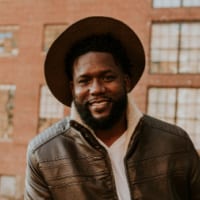
Terence Lester is a speaker, activist, author, and thought leader in the realm of systemic poverty. He’s known for nationwide campaigns that bring awareness to issues surrounding homelessness, poverty, and economic inequality.
His awareness campaigns have been featured on MLK50, CNN, Good Morning America, TVONE, Creative Mornings, USA Today, NBC, AJC, Black Enterprise, Rolling Out, Upworthy, and have been viewed by millions of people worldwide.
In 2018, Terence led the March Against Poverty as he walked from Atlanta to Memphis (386 miles). He finished the march and spoke at the historic Lorraine Motel for the 50th Anniversary of MLK’s assassination. He has spoken on the same platform as other civil rights activists such as: Bernice King, Roland Martin, Gina Belafonte, Michael Eric Dyson, Tamika D. Mallory, and many others. Terence’s unique approach combines storytelling and digital media to help illustrate social justice issues with practical approaches to solving these ailments. In 2013, Terence founded the non-profit, Love Beyond Walls, and has helped hundreds of individuals experiencing homelessness and poverty rebuild their lives. In 2019, Terence launched the first museum in the U.S. that represents homelessness out of a shipping container called, Dignity Museum. Terence has written four books and his new book, “I See You: How Love Opens Our Eyes To Invisible People” released August 13, 2019 with InterVarsity Press. He also holds four degrees and is working towards his PhD at Union Institute & University in Public Policy & Social Change. Connect with Terence on Twitter.
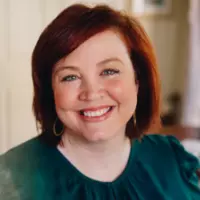
Kristi Porter is VP of Sales and Marketing at Vector Global Logistics, a company that is changing the world through supply chain. In her role, she oversees all marketing efforts and supports the sales team in doing what they do best. In addition to this role, she is the Chief Do-Gooder at Signify, which assists nonprofits and social impact companies through copywriting and marketing strategy consulting. She has almost 20 years of professional experience, and loves every opportunity to help people do more good.
